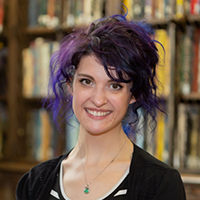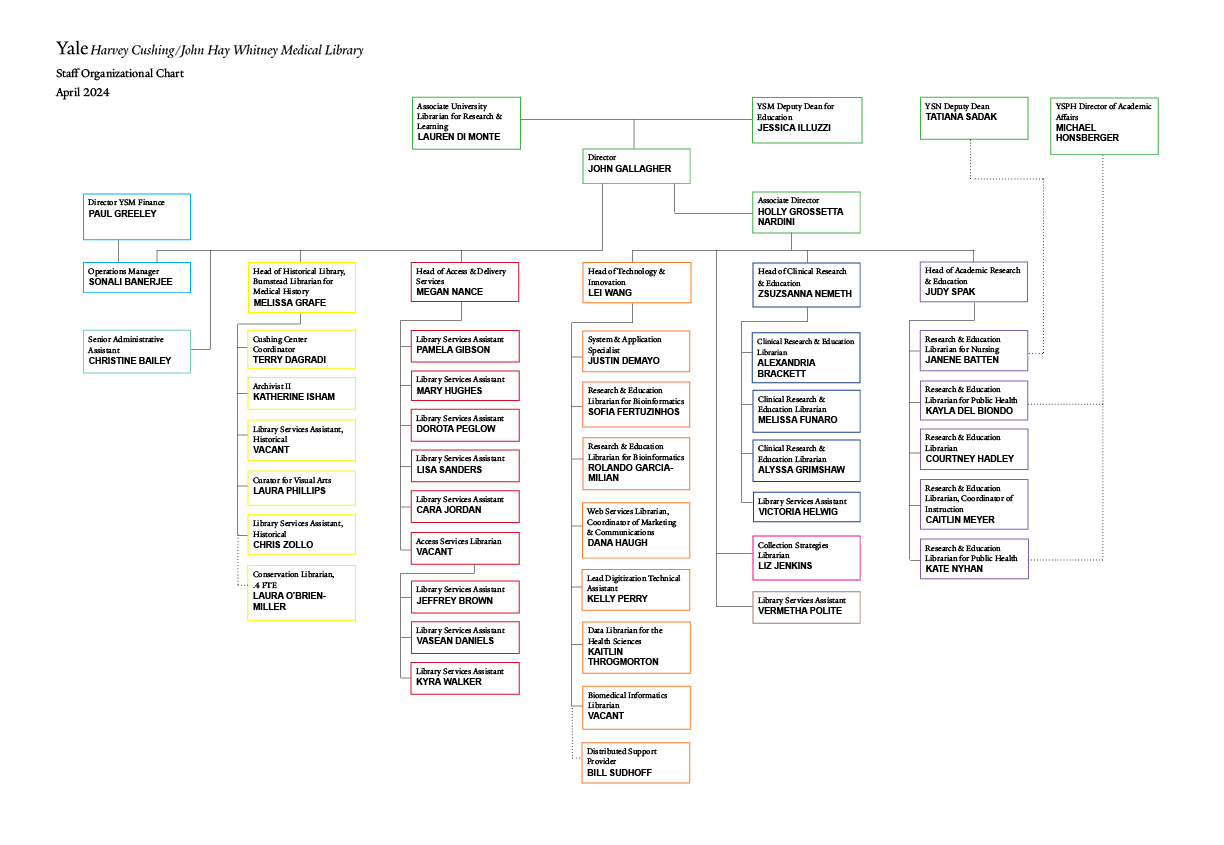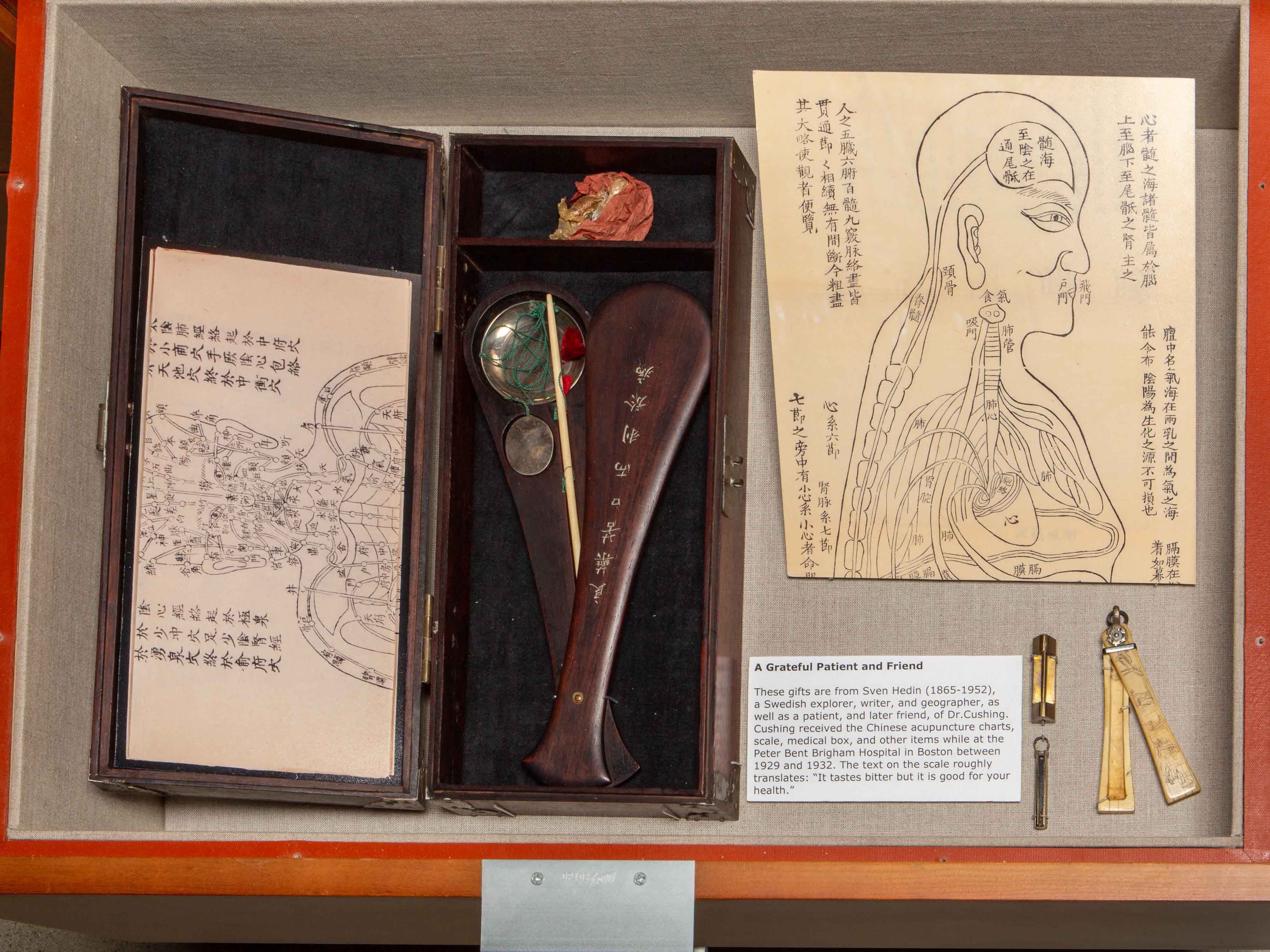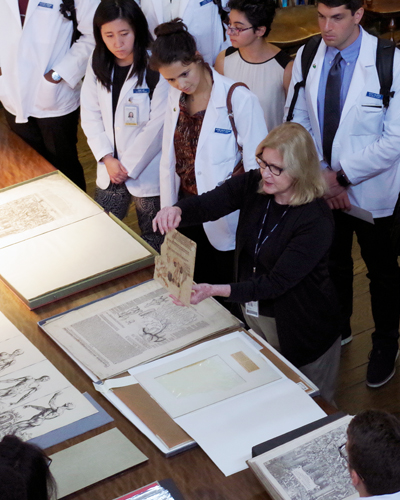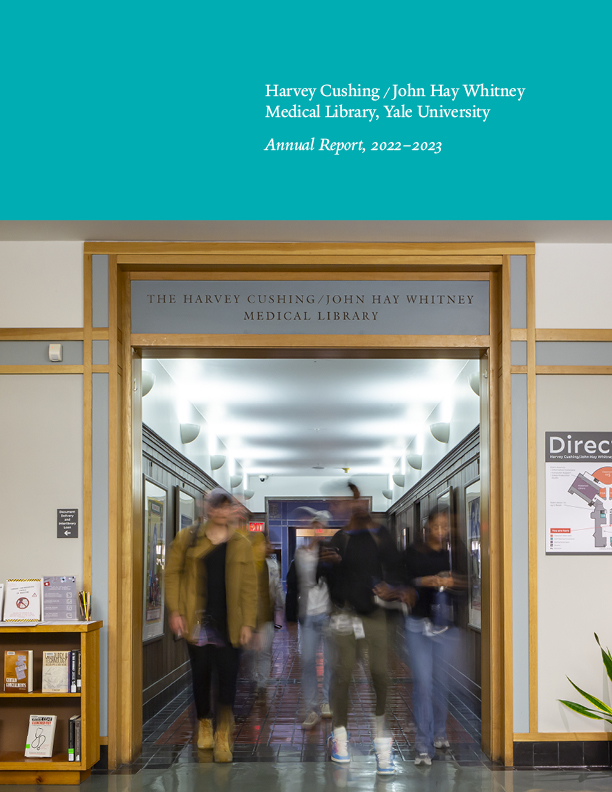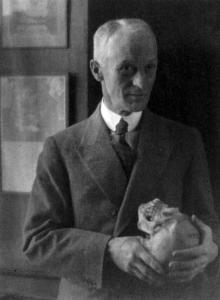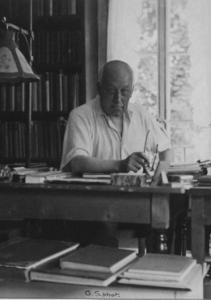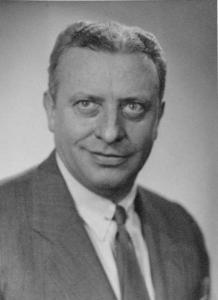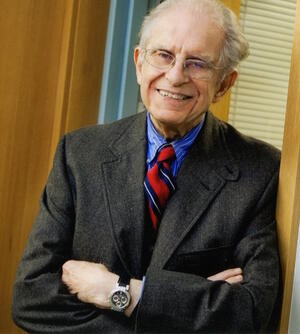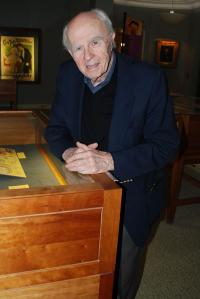all
Medical Library Building Closure 11/25/20
Cochrane Interactive Learning (external link)
Users must be connected to the VPN before registering.
Cochrane Interactive Learning is primarily for authors of systematic reviews following Cochrane methodology. It is useful for both introductory-level learners and more experienced learners who want to refresh and update their knowledge.
Cochrane Interactive Learning helps users gain a more in-depth understanding of the process of conducting a systematic review.
Education Research & Scholarship
In addition to being partners in the classroom, the library supports education research and scholarship.
Navigating the education literature
While clinicians and researchers query PubMed when they have a clinical or research question, searching the health professions education literature is not as straightforward.
PubMed or another MEDLINE product is a great starting point, but there are caveats:
Library Instruction in the Curriculum
Librarians are experienced, expert instructors, offering hundreds of workshops annually in the curriculum and the library general education program. We partner with faculty to achieve course learning outcomes in a variety of ways, from one-off lectures to whole-course collaborations. Our expertise is wide-ranging – including literature searching, citation management, types of literature reviews, and more. We are eager to design innovative learning experiences for students.
Medical Library to Cancel DynaMed Subscription
New Gift: José Manuel Rodríguez Delgado papers
New Books Added in March
"Data as Art" Exhibition: Call for Submissions
Add a Database, Resource, or Tool
Use this form to add a database, resource, or tool added to the medical library's A-Z list.
Medical Photographic History Fellowship Accepting Applications
Research Travel Grant Now Accepting Applications
Policy Commons
Reports, policy briefs, working papers, and media from thousands of IGOs, NGOs, and think tanks.
Free Trials - Scopus AI, Neurosurgical Atlas, Sage Business Cases
Mindscapes: Stories of Mental Health through Yale Collections
PsycInfo (Ovid)
Contains citations and summaries of journal articles, book chapters, books, and technical reports in the field of psychology and psychological aspects of related disciplines.
Education Research Complete
Covers all levels of education and includes books, journals, and conference papers.
Lens
An aggregator of metadata for scholarly works and patent records from a variety of data sources. The Institutional Toolkit provides additional features, including access to its Application Programming Interface (API) service. Please contact lens.admin@yale.edu for access.
NIH-Supported Scientific Data Repositories
Lists more than 100 data repositories supported by the National Institutes of Health (NIH).
Stata MP Now Available
Work in Medicine—as Context, Disease, and Cure
American Hospital Association (AHA) Data
Contains annual survey and supplemental datasets about U.S. hospitals' organizational structure, service lines, utilization, finances, insurance and payment models, and staffing.
To access, create an account on Wharton Research Data Services with your yale.edu email address.
Dryad
A curated, open data repository for finding, publishing, and preserving research data. Yale-affiliated researchers can deposit up to 300GB of data per project. More information: researchdata@yale.edu.
Access to the Cushing Center is Changing
ERIC
A database of education research consisting of journal articles, conference papers, technical reports, policy papers and more.
Publishing Considerations
There are many factors you may consider when choosing where to submit your work for publication. Using the tools and directories listed below to look up information about journals, visiting journals’ websites, and talking with a mentor, colleague, or librarian are all great ways to gather information before making scholarly publishing decisions.
Tools and Directories for Journal Information
Paid for by the Library
Patent Medicines, Medicine Shows, and The Secret Life of Blackface
Cabells Journalytics Medicine
Gathers relevant information about medical and academic journals to help research professionals looking to publish research, review scholarly contributions, or gain accreditation.
New Exhibition Celebrates 100 Years of Yale School of Nursing
An Intern’s Journey Through History: Extending the Past for the Future
Sketchy Medical
Creative videos, flashcards, and quizzes to support the learning and retention of complex medical concepts. Click "Continue with your school" on the login page and select Yale.
Sketchy Medical – New Resource Alert!
JAMA Evidence
Resources to help students and clinicians translate the theory of evidence-based medicine (EBM) into practice. Includes textbooks, tools, and forms to make decisions including validity, importance and applicability of claims.
Agricola
A curated database of agricultural literature from the USDA National Agricultural Library.
5minute Consult
A point-of-care tool developed for clinicians to quickly find evidence-based answers to support the diagnosis, treatment, and care of patients.
New Resources!
New Exhibition: This Lead Is Killing Us
Closed - Tuesday, July 4
Access to American Hospital Association (AHA) Data
Resource Not Available
Unfortunately, Yale no longer has a subscription to this resource. For a complete list of Yale Library holdings, please use Quicksearch.
If you would like Yale Library to considering purchasing this resource again, please submit a Purchase Request.
Visualizing Information: Designing Effective Posters and Figures
- Learn the basic principles of assembling an academic poster including recommendations for font, layout, and color usage
- Learn the basic principles of creating academic figures and visualizations to represent data, including analysis of various examples
- Understand pre-work required before creating figures and visualizations
- Discover free tools, resources, and support for creating the best representation of your research
Fellowships Awarded for Research
Fulfilling New Data Management & Sharing Expectations: The New NIH Policy and Beyond
- Understand the main components of the NIH Data Management and Sharing Policy (launched January 2023), plus additional related policies
- Describe how to write and submit data management and sharing plans, with an emphasis on complying with NIH guidelines
- Compare and evaluate various strategies for managing and sharing data, including data standards and data repositories
Cleaning and Transforming Data with Python: An Introduction to pandas (Python, Part 3)
- Determine what you want to achieve with data cleaning
- Work with pandas data structures (dataframes, series)
- Perform routine data cleaning tasks with pandas (e.g., dealing with missing data, converting data types, cleaning up text issues, etc.)
- Determine whether and what data transformation (e.g., grouping, subsetting, reshaping) might be needed for further analysis
Upcoming Space Enhancements in the Morse and Historical Library Reading Rooms
Extended Library Access for Recent Grads
Global Health through Historical Posters
APC Discount - Cold Spring Harbor Press
Healthcare Administration Database
Includes citations relating to hospital administration, insurance, law, statistics, business management, personnel management ethics, health economics, and public health administration.
New Location for Privacy Booths
Poison Yesterday and Today – New Exhibition and PSA for National Poison Prevention Week
Apply for the Ferenc Gyorgyey/Stanley Simbonis YSM’57 Research Travel Grant
JoVE
Peer-reviewed scientific video journal containing over 16,000 videos across a variety of disciplines and medical specialties including biology, genetics, and neuroscience.
Apply for the Stanley B. Burns M.D. Fellowship for the Study of Medical Photographic History
Love Data Week 2023 Recap
Killer or Cure? Poison through the Centuries
Stanley B. Burns M.D. Fellowship for the Study of Medical Photographic History
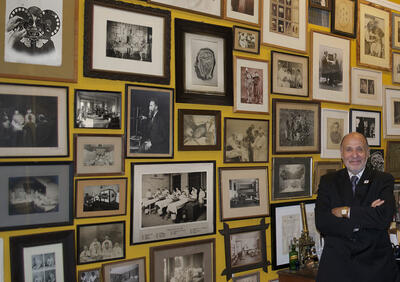 The Medical Historical Library in the Harvey Cushing/John Hay Whitney Medical Library at Yale University is pleased to announce its first fellowship for the study of medical photographic history.
The Medical Historical Library in the Harvey Cushing/John Hay Whitney Medical Library at Yale University is pleased to announce its first fellowship for the study of medical photographic history.
Valentine's Day Cards from the Medical Library
Full Access to JoVE Journal
Lexidrug
A collection of content sets and clinical tools that provides point-of-care drug and disease information to make evidence-based drug decisions that address patients’ unique needs.
Job Opportunity: Collection Strategies Librarian
New Exhibition: The Medical Lens: Highlights from the Stanley B. Burns, MD, Historic Medical Photography Collection
Tutorial Not Available
Thank you for your interest in viewing this tutorial. Unfortunately, it is no longer available due to one or more of the following reasons:
- outdated content
- obsolete resource(s)
- does not meet accessibility requirements
- the product or company offers up-to-date training videos (for example, Clarivate provides training videos for each new version of EndNote)
For questions, please email the Medical Library's webmaster.
Heidi, the (Anatomy) Lab-rador Retriever, Boosts Wellness at Yale School of Medicine
Beyond PubMed: Searching the APA PsycInfo Database in 30 minutes
- Formulating your question using PICO for an effective search in APA PsycInfo
- Build a search using keywords
- Incorporate the use of Boolean operators to connect your concepts
- Learn to use search syntax
Love Data Week 2024
Love Data Week 2024 will be held February 12-16, and once again will be co-hosted by the Medical Library and Digital Humanities Lab.
How to Write a Data Management Plan - Email Course
Frequently Asked Questions
Where can I find articles and books?
Refer to the Yale Library Online YouTube Channel videos 5 & 9 to learn how to use Yale’s QuickSearch to find books and articles.
Do I have access to the New York Times through Yale?
You can read the New York Times AND other subscription news sources for free through Yale University Library.
Action Items
New Users
Search for Literature & Data
*Remember, Public Health librarians are available to help during all stages of the search process.*
Connect with a Public Health Librarian
Consultations
Propose a meeting with a public health librarian, in person or virtually, at a time that works for you:
Please note: responses may take up to 2 business days.
You're welcome to send us an email at any time! Even if you don’t need help, we’d love to hear from you and collaborate. Email publichealth.librarians@yale.edu
Where Are You Going to Put That? How to Share Your Data
- Find and select data repositories
- Prepare your data for deposit
- Share data for maximum reuse
Meet Handsome Dan XIX on Dec 14th
New Collection: Gary C. Burget Papers
24/7 Computing & Study Space Becomes Designated Masking Area
Photoshop Basics: How to Create a Digital Sign
- Explore basic Photoshop tools and capabilities
- How to insert an image, overlay text, and adjust for readability
- Export a file suitable for a digital sign
Personal Librarian for Students
Find your personal librarian by school or program:
Grant Reporting, Compliance and Application (biosketch) through MyNCBI
- Ccreate MyNCBI account and how to link it to the eRA Commons account
- Delegate your account
- Populate and manage My Bibliography
- Use My Bibliography for grant reporting/compliance
- Use SciENcv to create different biosketches (from scratch, from external source, etc)
- Create an ORCID ID and link it to SciENcv
Introduction to Annotation of Gene Expression Data
- Learn basic concepts/vocabulary for transcriptomics analysis.
- Find the right assembly or reference genome to use in their analysis
- Different types of genomic annotations and what tools using to annotate datasets
- Use Enbsembl Biomart and NCBI datasets, and other tools to batch annotate lists
Introduction to Functional Analysis of Omics Data: Gene Set Enrichment Analysis (GSEA)
- Prepare your data and files for running GSEA
- Learn about Molecular Signature Database (MSigDB)
- Run GSEA analysis and the Leading edge analysis and results interpretation
- Send and visualize the results using the Enrichment Map app
Introduction to Functional Analysis of Omics Data: Overrepresentation Analysis (ORA) using public online tools
- Understand the components of an ORA: gene list, cutoffs, background, or reference set, etc
- Explore statistical vs biological (or study) results
- Visualize and present results
Making Sense of Genomic Variation: Part 1 SNP Annotation
- Learn how to annotate variations using dbSNP, Online Mendelian Inheritance in Man, GWAS Catalog, EBI-Ensembl Variant Effect Predictor
Introduction to Genome Browsers: Part 2 UCSC Genome Browser
- View gene structure and retrieve sequences
- Add and remove tracks
- Explore phenotype and literature track
- Find and retrieve variation data
- Find and retrieve genes located in a genomic region
Introduction to Genome Browsers. Part 1 Ensembl
- Learn the basic functionalities and navigation of Ensembl by using specific examples
- Annotate omics data using BioMart interface
- Retrieve data and information from the browser
Network Analysis of Omics Data with Cytoscape
- Create networks from file, importing networks from public databases
- Merge networks, grouping nodes
- Visualize expression (e.g. transcriptomics, proteomics) data on networks
- Find and download applications
- Use MetScape for visualization and interpretation of metabolic and expression profiling data
Where in the World is the Data You Need? How to Find and Reuse Data
- Articulate data needs based on a research question
- Locate and appraise datasets
- Examine real-world data
Analyzing and Visualizing Data with Python: An Introduction to numpy and matplotlib (Python Part 2)
- Import and use Python libraries
- Read tabular data into Python
- Perform basic statistical operations on the data
- Create basic plots from the data
- Process and plot multiple data files at once
Getting Started with Python: An Introduction to Programming (Python Part 1)
- Write your first program (“Hello, world!”, printing)
- Deal with mistakes (error handling)
- Work with text and numbers (strings, integers, floats, variables, assignment, concatenation)
- Store lots of numbers and/or text (lists, dictionaries)
Zotero in 30 minutes
- Build and organize a Zotero library with references from various resources
- Locate article PDFs efficiently
- Integrate Zotero into Microsoft Word and Google Docs for easy manuscript formatting
Grey (Lit) Matters
- Define grey literature
- Evaluate search strategies for grey lit
- Identify grey lit databases and their appropriate use
- Assess and demonstrate use of Advanced Google and Custom Searches
Find, Save, and Read Global Health Literature Like a Pro
- Explain the difference between scholarly and grey literature, and devise search strategies to find both kinds of information (pertaining to a global health research interest).
- Download and add a citation to Zotero or EndNote.
- Take notes about key areas of a source document.
Before You Write the Review: How to Effectively Read and Annotate Scholarly Literature
- Define ‘annotation,’ and explain how it applies to the research/review process
- Take notes about key areas of a source document-- some universal and some specific to their research topic (descriptive vs. analytical annotation)
- Explain the difference between scholarly and grey literature.
Managing Research Data
- Articulate why research data management is important, and how it can improve your project
- Understand best practices in research data management
- Learn how to write a data management plan (DMP)
What Does it Mean to Publish My Work ‘Open Access’?
- Explain what open access means, and what OA incentives exist at Yale to a friend.
- Use web tools/platforms such as DOAJ, OSF, and EliScholar to find information about an OA journal or upload their work to preprint server/repository, respectively.
- Recall policy changes of the NIH and OSTP that encourage openness of taxpayer-funded research— past, present & forthcoming (i.e. NIH Public Access Mandate, 2008 & OSTP Memo, effective 2025).
Medical Research in the News
- Identify news coverage of and social media reaction to biomedical research
- Compare popular and scholarly discourse
- Cite grey literature
- Evaluate grey literature
Demonstrating approaches to finding additional relevant documents
- Decide whether and how to do citation chaining
- Find other papers using the same instrument
- Find other papers with similar keywords/indexing
- Find related interim research products (preprints, grants, conference papers, code, datasets....)
Identifying Quality Sources of Information
- Learn to recognize factors that may indicate a journal is predatory.
- Identify trustworthy indexing sources.
- Learn to use tools to match a research topic to a journal.
- Understand the difference between PubMed and PMC.
Literature Searching for Health Professions Education (HPE) Scholarship
- Discuss how HPE scholarship differs from other forms
- Frame and create an answerable HPE research question
- Identify essential resources to query for HPE searches
- Search using controlled vocabulary and/or keywords
- Evaluate results
My Bibliography and SciENcv: Grant reporting, compliance and biosketch through MyNCBI
- How to create MyNCBI account and how to link it to the eRA Commons account
- How to delegate your account
- How to populate and manage My Bibliography
- How to use My Bibliography for grant reporting/compliance
Beyond PubMed: Web of Science
- Formulating your question using PICO for an effective search in Web of Science
- Build a search using keywords
- Incorporate the use of Boolean operators to connect your concepts
- Learn to use specialized search syntax specific to this database (truncation, wildcards, NEAR, etc.)
Advanced EndNote
- Options for sharing EndNote libraries with colleagues
- Customizing or modifying a journal output style to meet the citation requirements of a journal
- Creating "Smart Groups" and "Groups from Groups" to search your EndNote library effectively
Searching with Google and Google Scholar for the Health Sciences
- How to Search Google effectively and precisely
- How to use advanced search features and tools
- How to evaluate your results
Searching MEDLINE on the Ovid Platform
- Formulating your question using PICO for an effective search in Ovid
- Build a search using MeSH terms and keywords
- Incorporate the use of Boolean operators to connect your concepts
- Learn to use specialized search syntax (truncation, wildcards, adj)
Getting Started with HTML and CSS
- Basic understanding of HTML/CSS and how it's used to create websites
- The process for creating a rudimentary webpage
- How to style the webpage using CSS declarations
Hacking Your Research with Medical Subject Headings (MeSH terms)
- Identify potential collaborators or mentors at Yale
- Quickly locate relevant literature
- Use known articles to find additional literature to inform your work
Research Impact Basics
- Distinguish between author impact, article impact, and journal impact
- Identify common metrics used to gauge impact
- Use key tools to track, measure, and visualize research impact
- Deploy strategies to increase your personal impact
Managing Citations and Manuscripts with EndNote
- Build and organize an EndNote library with references from various resources
- Locate article PDFs efficiently with Find Full Text
- Integrate EndNote into Microsoft Word for easy manuscript formatting
Foundations of Critical Appraisal of Evidence
- Define the goals of critical appraisal
- Explore common tools for assessing evidence
- Practice appraising a randomized controlled trial
Beyond PubMed: Expanding your research toolkit
- Describe the scope of content in PubMed
- Compare general and specialty academic databases
- Leverage unique functions (searching, filtering, sorting) across platforms
- Perform advanced searches in multiple databases
Advanced Literature Searching in PubMed
- Describe the differences between MEDLINE and PubMed Central.
- Compare and use MeSH hierarchy and subheadings
- Identify and use field searching and automatic term mapping
- Create NCBI alerts
- Perform advanced searches in PubMed
Asking Clinical Questions & Acquiring the Best Evidence
- Formulate a well-built clinical question with PICO
- Construct a concept table and literature searching strategy
- Review levels of evidence and unfiltered vs filtered information
- Perform a search in PubMed
Library Orientation
- Identify library services and resources
- Summarize ways to access the library
- Recall steps to connect to resources off-campus
- Describe the role of the library as it relates to your work/education
Foundations of Evidence-based Practice Tools
- Write a well-built clinical question and transform it into a search strategy
- Utilize different strategies and tools for highly precise literature searching
- Compare and contrast searching the primary literature vs evidence-based practice mobile applications
- Critically engage with search results
Design Basics: How to Create Better Visuals
- Understand the importance of colors, fonts, and layout
- Recognize and identify common pitfalls in 'bad' graphic designs
- Come away with a list of free graphic design tools available on the web
Lexicomp replaces Micromedex as clinical medication reference provider
Holly Grossetta Nardini Selected as NLM/AAHSL Leadership Fellow
“Natural Interactions in the Book as Art and Making Knowledge”
New Exhibition: “Pasteur at 200”
Upcoming NIH Data Sharing Policy Change
A Busy Summer at the Medical Library
New Gifts: Health and Lyme Disease Activism
Closed July 1 - July 4
Activism through Historical Posters
Job Opportunity: Collection Development & Scholarly Communication Librarian
100 Years of Pediatrics at Yale
Scholarly Communication FAQ
What is scholarly communication?
Medical Library Facts & Figures
Overview
Standard language for NIH and other grant applications
Yale’s collection of 15 million print and electronic volumes is housed in 15 libraries, including Sterling Memorial, Beinecke, Marx, and Bass libraries, as well as many other school and departmental libraries, such as the Harvey Cushing/John Hay Whitney Medical Library on the medical campus.
Learn to Work with Data
Consultations

Manage Data
What are the essential components of data management?
(Re)Use Data

When reusing data, remember to be:
• Curious
• Critical
• Compliant
Download the full data reuse checklist [PDF]
Picturing Public Health and Medicine
National Public Health Week
Bert Hansen Collection
The Bert Hansen Collection of Medicine and Public Health in Popular Graphic Art includes over 1200 images and items produced between 1850 and 2010 with additional reference materials. The collection is a gift of historian Bert Hansen, Ph.D., whose goal was to document the visual record of medical practice and research and public health in America.
Medical Library Collects Medical Supplies for Ukraine
Library Access for Researchers with Disabilities
Building Information & Accessibility
The medical library is wheelchair-accessible via the Sterling Hall of Medicine entrance on 333 Cedar Street. Inside the medical library, users can access the E-level via elevator.
Hallway Exhibition: Scenes of city life
Search
Quicksearch (All Library Resources)
Search for articles, journals, books, digital collections, etc
New Exhibition on Hip Replacement Surgery
Announcing: Love Data Week 2022 at the Medical Library
New Collection: Yale Child Study Center Reference Collection
New Gift: Waltham Hospital medical records
Welcome New Staff!
Riesman Family Gift of Rare Medical Books and Manuscripts
New Gift: The Wilfrid Rall Computational Neuroscience Research Collection
Thanksgiving Hours
Melanie Norton Recognized for "Outstanding Leadership"
Organizational Chart
Organizational Chart
Updated April 2024
Click the image to view a larger version or scroll down to the text version
Open Access Week 2021
Search
Find Medical eJournals and eBooks
SymptomMedia
Film library of clinical training illustrates behavioral health symptoms unfolding on screen and serves as an educational tool for symptom recognition.
Evidence Synthesis & Literature Reviews Education
Arabic & Persian Manuscripts
This digitized collection of selected volumes of medical books and manuscripts, dating from 1300 to 1921, is drawn from the Medical Historical Library, Cushing/Whitney Medical Library. This collection reflects the Arabic and Persian intellectual efforts that translated, augmented, and transmitted Greek and Roman medical knowledge to Western societies during the Renaissance. It includes iconic works by authors such as Avicenna and al-Razi.
Happy Peer Review Week!
Medical Library Tabling Event (9/15/21)
YSPH Librarian Office Hours
Drop-in to chat with a public health librarian on Zoom. Dates and times are announced via the Cushing/Whitney Medical Library instruction calendar.
Use the link below to join:
Closed for Labor Day (9/6/21)
YSM Photographs
Photographs of Yale School of Medicine classes and reunions. There are more items from this collection that are not online. Please see the library’s catalog record for further details.
School of Nursing Collection
This collection contains alumni newsletters, magazines, digital theses, and images. There are more items from this collection that are not online. Please see the library’s catalog record for further details.
YSM Theses
Starting with the Yale School of Medicine (YSM) graduating class of 2002, the Cushing/Whitney Medical Library and YSM Office of Student Research have collaborated on the Yale Medicine Thesis Digital Library (YMTDL) project, publishing the digitized full text of medical student theses on the web as a valuable byproduct of Yale student research efforts. The digital thesis deposit has been a graduation requirement since 2006.
There are more items from this collection that are not online. Please see the library’s catalog record for further details.
Peter Parker Papers
Peter Parker specialized in treating diseases of the eye, particularly cataracts, but also performed general surgical operations including the removal of tumors. He is probably best known for the introduction of anesthesia to China in the form of sulphuric ether.
Pathology Teaching Collection
Medical illustration has a long history. For over two thousand years, such illustrations have been used to document and explain anatomy and medicine. Surviving evidence of this can be found in the ancient Egyptian Tomb of Ankhmahor, which features bas-reliefs picturing various surgical operations, in artwork dating from sixth-century B.C. Etruria depicting details of animal anatomy, and in Hippocrates' (ca. 460- ca. 370 B.C.) own medical writings, which he illustrated with drawings and diagrams.
Medieval Manuscripts
This collection of medieval and Renaissance manuscripts contains early medical and scientific knowledge on a variety of topics, including surgery, gynecology, medicine, herbs and remedies, anatomy, healthful living, astronomy, and mathematics. They are handwritten in Latin, Italian, Greek, German, and English. Some are illustrated, like MS18, De herbis masculinis et feminis [and other botanical and zoological works, including the Herbarium of Apuleius].
Medical Historical Posters
This collection of historical medical posters brings together various works included in gifts and bequests of Yale Medical faculty Clements C. Fry, Ira V. Hiscock, George M. Smith; the bequest of medical library founder Arnold C. Klebs; gifts of New York collector and benefactor William H. Helfand; and acquisitions through endowments.
Medical & Scientific Incunables
The Medical Historical Library contains over 300 medical and scientific incunabula, which are books, broadsides, and pamphlets printed before 1501. These incredibly rare incunables represent the earliest history of printing in Europe and the first examples of medical knowledge circulated in printed form. Many of the incunables display elements of the print and manuscript world, including marginalia, historiated initials, and some of the earliest printed depictions of the human body, often derived from manuscript illustrations.
Medical Instruments
This is a large collection of antique medical instruments and related objects acquired over the years entirely through donation. Many of the objects were the property of Yale Medical faculty and graduates, a number of whom practiced in Connecticut.
Medical Heritage Library
The Medical Heritage Library is a growing digital collection that promotes free and open access to quality historical resources in medicine. There are 26 titles contributed by the Cushing/Whitney Medical Library. There are more items from this collection that are not online. Please see the library’s catalog record for further details.
Lam Qua Paintings
The collection is composed of portraits commissioned by Peter Parker of men, women, and children of a variety of ages and at various stages in the progression of their tumors.
Salpêtrière Photographs
The Iconographie photographique de la Salpêtrière (1876-80) is a landmark publication in medical photography. This collection of texts and photographs represents the female patients of Dr. Jean-Martin Charcot at the Salpêtrière hospital and asylum during the years of his tenure as director. The patients, diagnosed primarily with hysteria or epilepsy, were treated at the asylum even as they acted as experimental subjects for Charcot’s development of the hysteria diagnosis.
George E. Palade Slides
The images in this collection are derived from high resolution scans of glass 3.25 X 4 inch "lantern slides" that were part of a large collection of slides covering his years at the Rockefeller University and Yale University School of Medicine. These selected images were scanned by James D. Jamieson, M.D., Ph.D., a student of Palade.
Civil War Photographs
One hundred and fifty years ago, the Civil War raged throughout the United States, creating thousands of casualties. The collection is composed of enlarged photographs of individual soldiers who were treated at Harewood Hopsital in Washington D.C. during the Civil War. These images, some quite graphic, depict soldiers recovering from a variety of wounds, including gunshot wounds.
There are 103 photographs in this collection.
Bookplates
Bookplates are usually considered just a sign of ownership, but many are works of art in their own right. This collection contains American, English, and Continental bookplates, assembled through donations over the years.
There are 1068 digital images for this collection. There are more items from this collection that are not online. Please see the library’s catalog record for further details.
Harvey Cushing Photographs
The Medical Historical Library holds the largest existing collection of photographs of Harvey Cushing. The images span Cushing's life from his boyhood in Cleveland Ohio, his college days at Yale, his surgical work at Johns Hopkins under William Halsted, his leadership of a surgical unit in World War I, his success in establishing neurosurgery as a medical specialty at the Peter Bent Brigham Hospital, to his final years at the Yale School of Medicine.
Postcards
This collection of postcards from the Historical Library features medical institutions in Connecticut: general hospitals, private hospitals, psychiatric hospitals, sanatoria, and the Yale School of Medicine. Most are from the period 1900-1940.
Prints and Drawings
The Prints and Drawings collection shows how artists have portrayed issues and events related to health and medicine over six centuries. It is one of the best known collections of its kind.
Tobacco Advertising
For well over a century, the tobacco industry has been selling smoke in America and abroad: marketing the very idea of smoking with the slick and calculated use of celebrity testimonials, promises of health benefits, memorable slogans, promotional sweepstakes, and more. Selling Smoke exhibits a wide array of tobacco advertising alongside anti-smoking campaign materials, drawn from the William Van Duyn collection of magazine advertisements, ephemera, articles, and pamphlets related to tobacco and cigarette-smoking.
Comprehensive Search Service
Librarians can partner with Yale & YNHH faculty and staff to co-author systematic reviews, scoping reviews, or other comprehensive literature searches. Some of the librarian's roles are listed below.
To request an appointment with a librarian, please fill out the Comprehensive Search Services form.
General Search Request Form
Librarians can assist with a generalized literature search for your medical or health sciences questions.
Welcome new staff!
EndNote 20 is here!
New Online Exhibition on Medical Astrology
Medical library resumes full operating hours Aug 1
Yale ITS maintenance to impact library resources
Editors and Authors Benefit from Librarian Involvement in Peer Review Citation List
By Janene Batten, EdD, Holly Grossetta Nardini, MLS, Kate Nyhan, MLIS
INANE 2021 Poster Citation List and Resources
Board Prep & eTextbooks
Board Prep Resources
-
Amboss serves students preparing for their USMLE exams. It includes Learning Cards to test future physicians’ medical knowledge of clinical topics along with a Qbank that covers 15,000+ clinical knowledge areas.
Diversity, Equity, Inclusion, and Belonging Resources
Instructions for Accessing Amboss
Visit this website: https://next.amboss.com/us/login
- Create an account or log in to an existing account
- Go to your profile settings
- Join a campus license and choose Yale from the dropdown
- Follow the email activation instructions
Amboss
For students preparing for their USMLE exams. It includes Learning Cards to test future physicians’ medical knowledge of clinical topics along with a Qbank that covers 15,000+ clinical knowledge areas.
Confirmation
Thank you for using our services at the Cushing/Whitney Medical Library. Your request has been received. We will contact you shortly regarding your request.
Contact Us
Circulation Desk:
203-785-5359 or AskYaleMedicalLibrary@yale.edu
Library Administration:
203-785-5352 or Fax: 203-785-5636
Other Contact Information
Prints & Drawings
Prints & Drawings
Harvey Cushing was a skilled artist. In his years at Hopkins, Cushing drew many medical illustrations that were published in medical journals. It was at this time that he met Max Brödel, the celebrated professional medical illustrator. Brödel’s contributions were enormous and there is little doubt that Cushing’s skills improved significantly under Brödel’s tutelage.
Reference Deduplicator
The Reference Deduplicator is a web-based application designed to effectively remove duplicates in a given set of bibliographic references. It reads source references in the standard RIS format, removes the references determined to be duplicates, and exports the remaining unique references.
Overlooked Images of Medicine with Bert Hansen
Diversity, Equity, Inclusion, and Belonging Resources
Below is a collection of resources relating to diversity, equity, inclusion, and belonging at Yale. Many of these resources are curated by medical librarians in partnership with various departments in the Yale medical center.
Introduction to LabArchives
Land Acknowledgment
Yale University acknowledges that indigenous peoples and nations, including Mohegan1, Mashantucket Pequot
EndNote Desktop: Sharing libraries and collaborating on research papers
Yale Library Self-Checkout now available!
Sage Business Cases - Resource Trial
Women's Leadership Resource Library
Newsletters
Keep current on medical library news by signing up for our newsletter.
Taking Note of Medical Education: exploring 16th to early 19th century medical education
Job Opportunities
Thank you for your interest in working at the Medical Library. There are currently no open positions.
Medical Library awarded 2021 Research Advancement in Health Sciences Librarianship Award
Recordings from Infectious Diseases Section Diversity Equity and Anti-racism Roadmap (ID2EA)
Click on a link to view the recording:
- Second Roadmap Stop - Geography is Destiny! (1-28-21)
- Third Roadmap Stop - It's time to listen: a conversation with our community (2-25-21)
Return to Infectious Diseases Section Diversity Equity and Anti-racism Roadmap (ID2EA)
NIH Living Textbook of Pragmatic Clinical Trials: New Content on Research Data
SPARC’s Federal Data Sharing Policy Resource Update Released
Library to Cover All Publishing Fees for PLOS Journals
Find Data
Where to Start Your Search
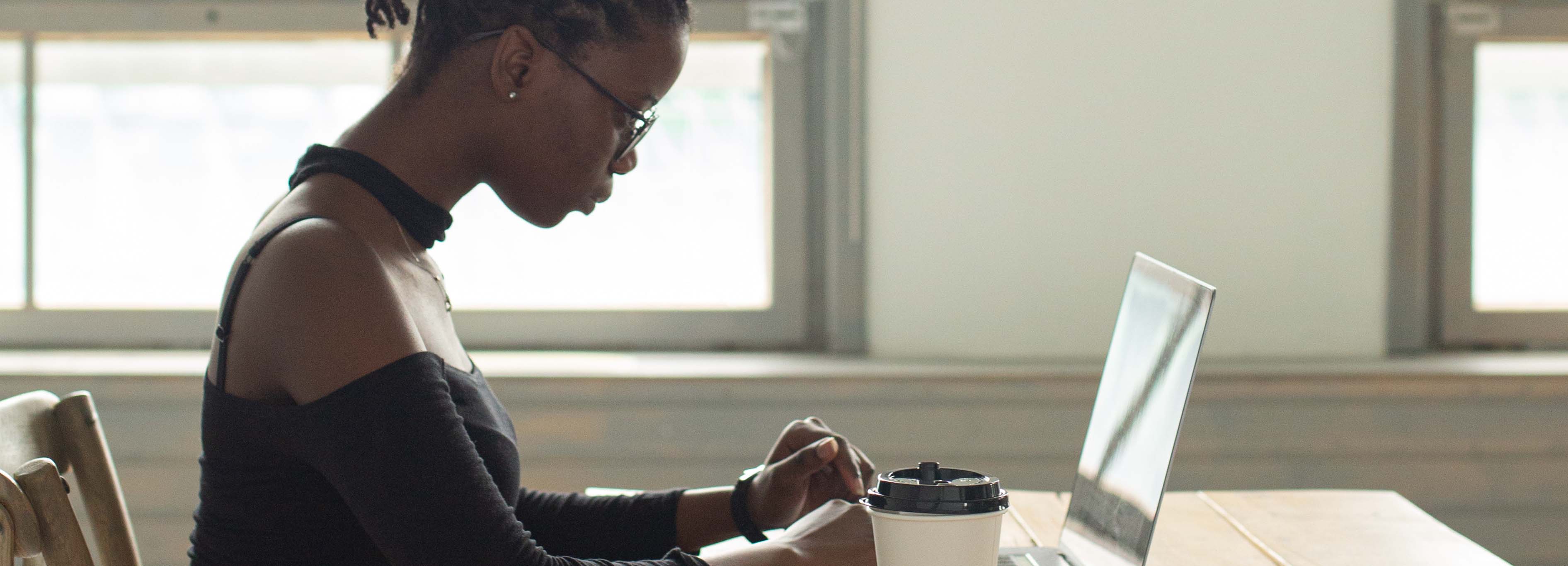
Literature Search
New online exhibition: “Materiality, Fragility, and Loss in the Medical Archive”
Zsuzsanna Nemeth, MALIS
Electronic Lab Notebooks
Electronic Lab Notebooks (ELNs) enable researchers to organize and store experimental procedures, protocols, notes, and data, using their computer or mobile device. ELNs can offer several advantages over the traditional paper notebook in documenting research during the active phase of a project, including searchability within and across notebooks, secure storage with multiple redundancies, remote access to notebooks, and the ability to easily share notebooks among team members and collaborators.
Electronic Lab Notebooks
What are lab notebooks?
Lab notebook entries are primary records of research. Researchers use laboratory notebooks to document their hypotheses, experiments, and initial analysis or interpretation of these experiments. The notebook serves as an organizational tool and a memory aid.
Job Posting: Research and Education Librarian for Bioinformatics
Remote Services & Support
Bioinformatics Support Office Hours: Resuming in 2021
Winter Recess and Reopening Plans
Holiday Pet Photos
Welcome to new staff who joined the Cushing/Whitney Medical Library in 2020!
The Medical Library Book Tree
Newly acquired trove of historic photos captures evolution of medicine
The “Great Risk” of “Opium Eating”: How Civil War-Era Doctors Reacted to Prescription Opioid Addiction
Bioinformatics Support Office Hours: Resuming 12/10/2020
Attention: No Bioinformatics Office Hours on Nov 5th, 2020
Change in Oct 29th Bioinformatics Support Office Hours
Open Access Week
2021
Friday, October 29th
We are wrapping up Open Access Week 2021, but that doesn’t mean the celebration has to stop! You can still incorporate the values of open access week in your day to day work! Actions you can take include:
Publishing in an open access journal
Posting a manuscript to a preprint server
Using Creative Commons licensed content
Follow publications like the Scholarly Kitchen, who regularly post about open access
About the Cushing Center
Mission
The mission of the Cushing Center is to inspire wonder about the human brain and its disorders, to educate visitors about the history of modern neurosurgery, and to respectfully steward the remains of patients contained within the Cushing Brain Tumor Registry.
Plan Your Visit
Plan Your Visit
VISITING
Explore the Collections
Explore the Collections
There is much to see and discover in the Cushing Center so we encourage you to explore. In addition to the specimens throughout the Center, open the discovery drawers beneath the exhibition cases, light up the vitrines to get a better view of the current display, browse the books, open the large poster display doors to view images from Cushing's life, collections, and the patients he care for, and more.
The Space
Click on the map below to view a larger version
On Exhibition
On Exhibition
Explore the exhibition in the Cushing Center following these descriptions, beginning with the first case at the bottom of the ramp on your left, and wrapping around towards the emergency exit door.
Exhibition curated by Terry Dagradi and Deborah Streahle
Cushing Memorabilia
Cushing Memorabilia
Diaries, family photos, a well-used camera, baseballs are just a few of the items that you see in the memorabilia cases.
A white coat, cleaned and pressed, next to a bronze of his right hand, gives a sense of Cushing’s physical stature. Some items from his office – a nameplate, the Cushing Medallion commemorating his retirement from Harvard in 1932 – are displayed next to a picture of Cushing doing a back flip during his undergraduate days at Yale.
Introductory Videos
Introductory Videos
ABOUT THE CENTER
Learn the story of one of the most important names in neurosurgery: Dr. Harvey Cushing. How did his unique collection of medical specimens come to reside at the new Cushing Center at the Yale School of Medicine? Produced by Doug Forbush and the Yale Broadcast and Media Center
In the News
In the News
- Connecticut Magazine - Brrraaaiiinnnsss ... by Ray Bendici
- Cleveland Historical - The Cushing building: birthplace of America’s first neurosurgeon by Jim Dubelko
Dr. Harvey Cushing
Dr. Harvey Cushing
Finding Fulton in the Historical Library
Bioinformatics Support Office Hours: Fall 2020
Medical Library Reopens on August 24
Book Lending Resumes
Testing this for PL
Borrowing Privileges & Library Policies
Self-checkout is now available through the Yale Library Self-Checkout mobile app.
Click on your affiliation with Yale University to learn about borrowing privileges
Faculty
Borrowing period: 1 year at all libraries
Borrowing limit: 1000 items
Interlibrary Loan
Submit an Interlibrary Loan Request or view your existing requests
YNHH First-time users: Register Here
Non-Yale Users
Fee is $25.00 per article/book owned by the Cushing/Whitney Medical Library
About the Library

Contact Us: 203-785-5359 or email AskYaleMedicalLibrary@yale.edu
Research Help
Specialized Help
Self-Guided Learning
Services
Support For
Helpful Links
Online Resources
Table of Contents
Associations & Organizations • Education Resources • Images • Online Guides • Museums • Discussion Groups • Yale
Selected Special Collections and Archives
A great overview of History of Medicine collections can be found in the National Library of Medicine's Directory.
Collection Budget Reduction
Access to Medical Library Resources from Clinical Locations
Yale New Haven Hospital
If you are physically at the Yale New Haven Hospital, York St. or St. Raphael campuses, you can access the library’s collections through any networked computer. This also includes locations such as Long Wharf, Shoreline and many YNHH satellite locations.
Cochrane Interactive Learning
Helps users gain a more in-depth understanding of the process of conducting a systematic review.
Make sure you are connected to the VPN before visiting.
Collection Budget Reduction
Due to the economic impact of the COVID-19 crisis the medical library must reduce our general collection expenditures for fiscal year 2021 by around 10%, or over $400,000. Below you will find a document containing the materials selected for cancellation as well as the methodology for making these selections.
Download the Cancellation List
Assessment process
Race and Racism in Health Care
Table of Contents
This list is not intended to be exhaustive or complete. We have attempted to bring together seminal works for those starting to understand systemic racism in healthcare. If you don't know where to start, these resources will help.
Contact Us
Contact Us

If you would like more information about the Associates program, or if you would like to discuss how you could help the medical library, please contact:
John Gallagher, Director, Cushing/Whitney Medical Library
203-785-5352
john.gallagher@yale.edu
Membership & Benefits
Membership & Benefits

Annual Lectures
Annual Lectures
Each year, the Associates host a lecture in the Historical Library. Past speakers have included Nobel Laureates, writers, professors and Surgeons General who have lectured on a wide variety of topics relating to medicine.
Clinical Librarian Team
The DIY Historical Herbarium
Grants & Fellowships
The Medical Historical Library offers several travel fellowships and grants. For details on applying to our annual travel grant worth up to $2000, with deadlines in late April and early May, see the The Ferenc Gyorgyey/Stanley Simbonis YSM’57 Research Travel Grant.
Permissions & Copyright
The Medical Historical Library is committed to providing broad access to its collections for teaching, learning, and research in accordance with Yale University Policy. The Medical Historical Library’s website, catalog records, finding aids, and digital images enhance scholarship and promote use of both the digital and the original object.
COVID-19 Medical Student Elective Course
Virtual Office Hours
CWML Announces Public Collection of COVID-19 Citations
Bioinformatic Analysis Support during COVID-19
Online Services & Resources from the Medical Library
Call for Submissions: Discovering the Beauty of OMICS Data
Bioinformatics Support Office Hours are BACK!!!
Disability, Disability Activism, and the 30th anniversary of the Americans with Disabilities Act
Scholarly Communication
Scholarly communication is defined by the Association of College & Research Libraries as “The system through which research and other scholarly writings are created, evaluated for quality, disseminated to the scholarly community, and preserved for future use.” This field of study encompasses all steps associated with a research project from the first idea to the final publication. Scholarly communication is important as the ways researchers produce and disseminate research is changing rapidly.
PubMed vs. PubMed Central
PubMed and PubMed Central (PMC) are often mistakenly thought of as the same database. To be officially recognized by PubMed, journals must be selected by the National Library of Medicine for inclusion in MEDLINE. This requires a review process to ensure that the journal meets the appropriate quality and technological standards necessary for inclusion in MEDLINE.
Predatory Publishing
Journals that pose as gold open access but have little to no review or editing process and publish at the author’s expense are known as predatory. While the term “predatory” may be most accurately applied to journals intentionally scamming authors and funders out of APC payments, this only represents a small portion of the group being labelled as “predatory journals.” A far more prevalent issue is publishers whose editorial and review standards are not as strenuous as their legitimate counterparts, resulting in poor quality and often inaccurate research being published.
What's New in Open Access?
The world of scholarly publishing is changing rapidly and rise of new open access models and directives is shaping the conversation about the future of scholarship. Below is a brief summary of major events or initiatives that have taken place around open access recently.
Open Access Publishing
Yale Library provides support for authors publishing in open access journals through APC waivers and discounts.
Open access publishing models fall primarily into 2 categories: gold and green.
Gold open access typically refers to an author working with a publisher to make the article version of record (VOR) freely available on a journal’s website.
Open Access
 “Open Access” publishing refers to scholarship that is made freely available worldwide to anyone with an internet connection. It differs from “traditional publishing,” in which scholarship is published behind a paywall and accessible only to subscribers.
“Open Access” publishing refers to scholarship that is made freely available worldwide to anyone with an internet connection. It differs from “traditional publishing,” in which scholarship is published behind a paywall and accessible only to subscribers.
Software & Hardware
We license a variety of commercial bioinformatics software in support of the biomedical research data lifecycle. These tools are free of charge to Yale biomedical researchers (including students, postdocs, and staff).
Software
We license a variety of commercial bioinformatics software in support of the biomedical research data lifecycle. These tools are free of charge to Yale biomedical researchers (including students, postdocs, and staff).
Click on each link below to request/register for an account.
Training
Peer-to-Peer Teaching
Share your knowledge and gain experience by teaching a class or workshop on subjects related to data manipulation/analysis, visualization or experimental design at the Medical Library! Fill out this form if you are interested.
New Exhibition: The Enduring Appeal of “The Doctor”
Job Posting: System and Application Specialist
Understanding the 2019 Novel Coronavirus (COVID-19)
Library Staff Publications
Library Staff Publications
The following is a list of publications authored and co-authored by Harvey Cushing/John Hay Whitney Medical Library staff. The evidence synthesis and comprehensive searching projects would not be possible without a team of dedicated support staff who facilitate article retrieval and citation management: Vermetha Polite, Mary Hughes, Vasean Daniels, Dorota Peglow, Pamela Gibson, and Lisa Sanders.
Last updated: 4/17/24
The Bert Hansen Collection of Medicine and Public Health in Popular Graphic Art
Data and Privacy: A Panel Discussion
Board Games
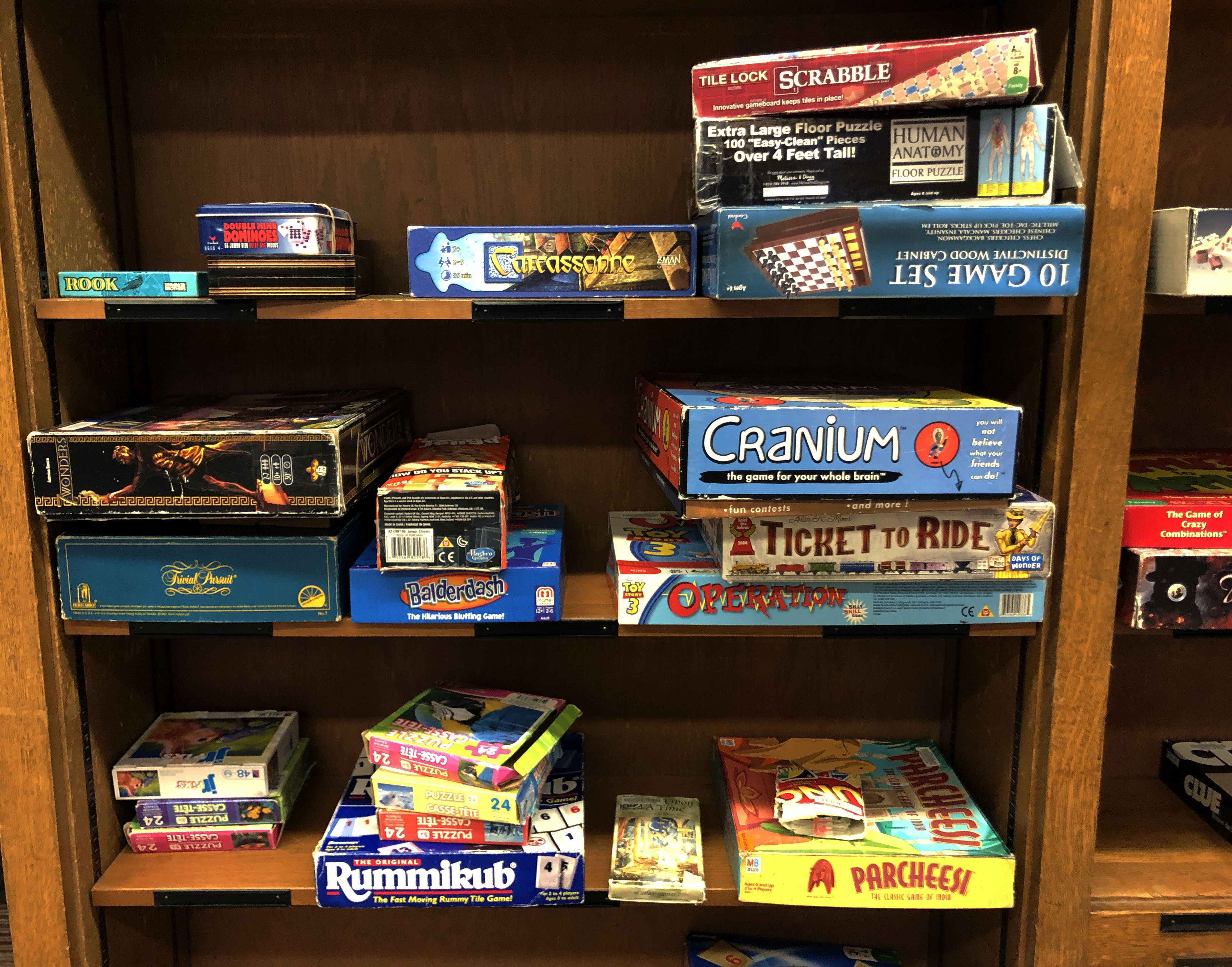 The following board games are located in the Morse Reading Room and available for 1-week checkout:
The following board games are located in the Morse Reading Room and available for 1-week checkout:- 7 Wonders
- Apples to Apples
- Apples to Apples Junior
- Are You Smarter than a 5th Grader?
- Azul
- Balderdash
- Carcassonne
- Chess
- Combination Game
- Cranium
Explore some of the earliest printed medical books in our collection online
Therapy Dog Gracie's Upcoming Visits
MS COLL 64 The Martha H. Roper Papers
New Paper by CWML Medical Librarians
Medical Librarians at NAHSL 2019
Plastic Surgery at Yale: Surgical Expertise, Innovation, and History
November: National Awareness Month for Alzheimer’s Disease and Home Health Care
Free health sciences resources
Open Access Week 2019
The Rebound Film Screening & Discussion
Disability Awareness Month
Course Reserves
At Cushing/Whitney Medical Library, we want to make it easy for your students to access all the information they need. We will buy or license almost all assigned readings, as long as we know about them.
Send us the syllabus for your class and we will buy, license, or scan all the assigned readings: CWMLreserves@yale.edu
How does it work?
Arthur Belanger's Retirement
Join us for a reading of the U.S. Constitution
Gracie visits on Wednesday
Access to Ovid is Changing
Celebrating 10 Years of the Cushing Center
New Collection: The Hall-Benedict Drug Company Logbooks and Ledgers
Labor Day Hours
Grant Wood’s American Gothic Repurposed and Several Anti-Smoking Acquisitions
Room Reservations Now Live!
Job Posting: Research & Education Librarian
Welcome Nur-Taz Rahman
New Mac OS Open Source Software Installations
YNHH Computer Login Process
NEW: ClinicalKey for Nursing, MetaDrug, and Integrity
MetaDrug
Incorporates extensive manually curated information on biological effects of small molecule compounds.
Cortellis Drug Intelligence
Access to pipeline data, granular target and MOA information, and manually curated data specific to drug development.
Users must create an account to access this resource. Select “register” and use a yale.edu or ynhh.org email to create an account. Once your account is created, use those credentials to login.
ClinicalKey for Nursing
Features timely content covering nearly every nursing specialty. Includes journals, books, disease topic pages, procedures videos, and more.
Faculty Video Production Studio
Finding Associated Data in PubMed and PubMed Central
BioCyc
A genome and metabolic pathway web portal to visualize metabolomics data on individual pathway diagrams and on the organism-specific metabolic map diagrams that are available for every BioCyc organism.
Two New Bioinformatics Tools
YSPH Summer Office Hours
Mobile Apps
Apps Licensed by Yale
How to use: Register for an account while on the Yale or YNHH network, then download the app and sign in with your account information. Questions? Contact clinical.librarians@yale.edu.
Katie Hart recognized with Visionary Award
Ribbon Cutting ceremony officially opens newly renovated spaces
Library closed on July 4th
Celebrating 90 Years of the Yale Journal of Biology and Medicine (YJBM)
ECRI Guidelines Trust
A publicly available repository of objective, evidence-based clinical practice guidelines with up-to-date clinical practices to advance safe and effective patient care.
Celebrate Pride Month!
Save the Date: Library Renovation Unveiling & Celebration
Fire Alarm Testing 5/28
Closed for Memorial Day
Noise Alert! Renovation countdown begins
Search
Search the website
Get a $10 Blue State Gift Card
Long Night Against Procrastination!
Job Posting: Systems and Applications Specialist
Resource Spotlight: Journal Citation Reports
Wellness Room Open
Celebrate National Public Health Week 2019
March Madness at the Library!
New Resources and Classes for Spring
New Renovation Pictures
Explore Medieval and Renaissance Medical and Scientific Manuscripts
Finding Drug Information
Picturing Disability Technology
Fair Use Week
2019 Data Weeks at the CWML
Love Data Week 2019 at CWML
Endangered Data Week 2019 at CWML
Black History Month at Yale
STAT Plus
Access to exclusive, in-depth coverage of early science and clinical trials, pharma and biotech news. *Create a personal account using your yale.edu or ynhh.org email address*
STAT Plus is here!
Python
Python is an interpreted, object-oriented, high-level programming language with dynamic semantics. Itts high-level built in data structures, combined with dynamic typing and dynamic binding are useful for Rapid Application Development, as well as for use as a scripting language.
Sources for Further Information
-
Getting Started - A beginner’s guide to installing and learning Python
Hot Chocolate Bar on January 31st!
New year, new classes!
Resource Spotlight: Global Health
Library closing early on January 23
Free 30 Day Trial to BMJ Best Practice!
CWML Annual Report Available!
Library Technology
Printing, Photocopying, and Scanning
A Yale PaperCut account is required to print, copy or scan. Create an account or download the desktop client at YPPS Print Account Management page.
Prices:
-
Black and white: $ 0.08 per image for the 1st side and $ 0.04 per image for the 2nd side.
-
Color: $ 0.25 per image for each side.
- 11"x17" copies: $0.20
Ask Us
Questions from Yale affiliates will usually be answered within 1 business day.
Say hi to new staff!
Aquifer
A collection of interactive virtual patient cases that correlate with the learning objectives of clinical clerkships.
Behind-the-scenes peek at the CWML renovation
Simbonis Fellowship in Bioinformatics
Common EndNote for Mac issues and how to solve them
Child Sex Trafficking e-Learning Module
Part of the Child Abuse Atlas, this accredited e-learning module will enable learners to better recognize, respond to, and treat adolescent victims of sex trafficking. It was developed by Child Abuse Pediatricians and Emergency Physicians in cooperation with the International Centre for Missing and Exploited Children (ICMEC).
30 Day Trial to STAT Plus!
MedOne Plastic Surgery
Books, step-by-step instructions for core procedures, cases with management strategies, images and surgical videos.
Demolition Begins!
Fall Class Highlights
New to the Collection: Check out new resources available from CWML
Construction Begins!!
Ten Facts to Know About Synthetic Cannabinoids
Resource Spotlight: Ingenuity Variant Analysis
Reno-relocation
Meet our first Simbonis Intern!
Furniture Moving
Day One of Furniture Move...
Renovation prep begins Monday, July 30th
Library Training & Events
Training and events are offered virtually and in-person. View our email courses for asynchronous learning opportunities.
Free Trial to MedOne Plastic Surgery!
Noise Alert for Friday, July 13th and Saturday, July 14th
The Cushing/Whitney Medical Library would like to thank Hongyu Liu and Tao Wang for their donation of the glossary “English-Chinese Glossary of Basic Human Anatomy.”
Not a 'Harem' : Codding, Eisenhardt, Stanton, and the Lives and Legacies of Dr. Harvey Cushing's Female Associates
The Betsey Cushing Study Rooms
Medical Library Association Annual Conference
Resource Spotlight: BMJ Case Reports
Finding Conference Proceedings
Ingenuity Variant Analysis (IVA)
Useful tool for identifying and verifying variants by using 16+ years of expert manual curation of the scientific literature.
New Home for Three-Day Reserve Materials
CWML Librarians receive national recognition
Easy Victims to the Dreaded European Visitor
Job Posting: Web Services Librarian
VisualDx access at CWML!
Sneak peek of what's to come...
Welcome Katherine!
Resource Spotlight: Scopus
Nutrition that Heals: Plant-Based Nutrition for the Clinician
Free 30-Day Trial to Aquifer Addiction
Finding Book Chapters
New exhibition on the Early Modern Pharmacy, 1500-1800
Dermatology Grand Rounds in the Historical Library
Census Panel Discussion: Recap and Additional Resources
It's March Madness at Cushing/Whitney Medical Library!
Resource Spotlight: Incidence & Prevalence Database
Dr. John F. Fulton: A Bibliography
Dr. Fulton was a prolific author, writing and publishing over 400 articles, books, and book chapters during his career as a neurophysiologist. Here we have articles starting from his time as an undergraduate researcher at Harvard College up through articles published after his death. The topic of his articles span from biographical works, to descriptive neurophysiology, to basic science experiments and original research reports. The Yale Journal of Biology and Medicine published a bibliography of his works in a special anniversary issue.
Diary Keywords and Themes
Below are the extracts from the diaries for the following keywords:
Aeromedical Research Unit
Alcoholism
Carlyle Jacobsen
Charles Sherrington
Derek Denny-Brown
Hsiang-Tung Chang
Dusser de Barenne
Ebbe Hoff
Franklin Robinson
Fulton-Cushing Relationship
Harvey Cushing Biography
Henry Viets
Hodgkin and Huxley
Howard Florey
Jay Winternitz
John Flynn
John P. Peters
Jose Delgado
Joseph McCarthy
Journal of Neurophysiology
Journal of Neurosurgery
Triumph and Tragedy: The Life of John Farquhar Fulton
Who was John Fulton?
A pioneer in cognitive neuroscience
Gordon Shepherd and Cynthia Tsay
High-Performance Workstation at the Cushing/Whitney Medical Library
Karger Journals unavailable though YaleLinks
Job Posting: Data Librarian for the Health Sciences
PsycTESTS
A repository of psychological tests and measures curated by the American Psychological Association (APA).
Endangered Data Week at CWML - Schedule of Events!
Resource Spotlight: CINAHL
Mark your calendars! Census Data and Public Health Panel Discussion (2/27, 12pm) at CWML!
TRANSFAC
Published data on eukaryotic transcription factors (and miRNAs), their experimentally-proven binding sites, and regulated genes. A Yale email address is required to create an account.
Renovation Update!
"A Man of Commanding Presence": Dr. James Henry Etheridge Papers and Exhibition
Love Data Week at CWML - Schedule of Events!
Color Our Collections Week - 2018!
New Exhibit for Winter 2018
Love Data Week and Endangered Data Week at CWML!
The Robert Bogdan Disability Collection
Welcome new Cross-Departmental Team members
Resource Spotlight: Bates' Visual Guide to Physical Examination
Open Position: Assistant Director of Clinical Information Services
The Cushing/Whitney Medical Library is pleased to introduce our new therapy dog, Gracie!
Construction in the 24-7 room
2016/17 Annual Report
New Resource Alert: Try BMJ Learning free until Feb. 16th!
New year, new classes! Check out our new PubMed and EndNote workshops
Library hours and services during winter recess
Help us improve our web interfaces! (And get $10 to spend at Blue State Coffee)
Resource Spotlight: Pharmaprojects
Upcoming Talk: The Gender Gap in Early Career Transitions in the Life Sciences
New Book for the Humanities in Medicine Collection
Resource Spotlight: AccessMedicine
Meet Gracie, the Library's new therapy dog
Scheduled outage of some library online applications, Nov 3-6
New Video: Bioinformatics at Yale
Exhibit: "War is not healthy for children..." and Other Recent Acquisitions
BMJ Case Reports submission code
When prompted, researchers should use the code 200948 when submitting a new case to BMJ Case Reports.
Biomedical Literature Searcher
YNHH Medical Staff Library Portal
Have questions? Contact a Clinical Librarian (webform)
Clinical Skill Resources
Janene Batten receives YNHH Nurses Choice Award
"The Time is Now! The Many Faces of Diversity": A National Disability Awareness Month lunchtime workshop
Pop-Up Exhibit: Revolutionary Public Health Campaign, September 27, 4-6 p.m.
Drop-in Mindfulness Practice
Disability in the Modern World
Includes primary sources, supporting materials, and archives, along with video.
Renovation Update:
Back-to-School Supply Drive, August 4-25
Business Source Complete
Provides bibliographic and full text content, including indexing and abstracts for scholarly business journals in all related disciplines. For researchers in healthcare, this database may be useful in identifying quality improvement literature.
Collection Development & Scholarly Communication Librarian
Beyond Impact Factor: How do I know which journal to publish in?
Cataloging Cushing's Patients
New exhibition: "New Lives for Old Specimens," May 25-November 3, 2017
(RESOLVED) YaleLinks not showing up in PubMed
Upcoming Renovations in the Cushing/Whitney Medical Library
Moral Judgment in Evaluating Disease: Some Pictures for Discussion
Join our team! Now recruiting a Research and Education Librarian
#SteppingOutAtYale – APHA’s #1BillionSteps Challenge, Library Edition
Flo Gillich retires from the Medical Historical Library
IPA downtime notice March 31-April 2
DocCom temporarily out of service
3 new articles on scholarly publishing you ought to read
Cushing Center closed on March 23-24
Cushing/Whitney Medical Library celebrates National Public Health Week
Yale School of Nursing jumps in USNWR rankings
Yale University closed Tuesday, March 14
LILACS
Offers access to the scientific and technical literature of Latin America and the Caribbean. Covers a variety of information formats with availability in multiple languages.
Musical Revue
Acland's Video Atlas of Human Anatomy
Uses fresh, unembalmed specimens to retain the color, texture, and mobility of the living human body in 3D. Features include section exams (free login account) and glossary.
Partek Flow
For the analysis of next generation sequencing data including RNA, small RNA, and DNA sequencing. It provides a graphical user interface that allows to build your own custom analysis pipelines for alignment, quantification, quality control, statistics, and visualization.
69th Annual Lecture of the Associates of the Cushing/Whitney Medical Library
Classes, consultations, and Cushing Center tour are cancelled today
Love Your Data Week -- celebrate with us!
Color Our Collections Week - 2017!
Report from the field: Leveraging Diversity in Grey Literature
Workshop: Increasing the Openness and Reproducibility of Your Research
Taylor & Francis unavailable January 26 from 6-10pm
Stay connected with Facebook!
Calling all singers! Performance opportunity for a Medical Library event
Try the HappyLight energy lamp...
New exhibition: "Refugees, Immigrants, and Library Books for Soldiers: A Selection of World War l Posters from the Collections"
New exhibition: "Yale Medicine Goes to War, 1917"
Borrow Direct is down
Qlucore
Facilitates a dynamic, visualization-guided analysis of OMICs data, applicable to various phases of a discovery cycle. Register to use
Qlucore Omics Explorer: A new tool for discovering and exploring omics data
Track drugs from bench to patient with Pharmaprojects
Pharmaprojects
Covers the progress of new drug candidates as they enter commercial pharmaceutical research and development programs. Create your account using your Yale email.
Technical issues on the Taylor & Francis Online platform
Covidence
Covidence
(To use Covidence, contact your medical librarian to open an account.)
A systematic review tool that facilitates the process of screening articles for inclusion, while complying with the recommended protocols.
Join our team! Now recruiting a Clinical Librarian
Join our team! Now recruiting an Access Services/Clinical Librarian
A new look for the Library website, and changes to navigation
Holly Grossetta Nardini appointed Associate Director
Bioinformatics Support Hub
Free bioinformatics resources and tools, consultations, training sessions, and collaborations from the Harvey Cushing/John Hay Whitney Medical Library
Library staff recognized with Lorimer Award
Artist/Activist Sue Coe describes her HIV-AIDS drawings during a visit to Yale University
Reader's Advisory: "Darkness Visible," Depression Screening Month, and the Styron-Yale connection
New at Yale: Covidence, a tool for systematic reviewers
Book Swap! Oct. 3-14th, 2016
(2 X 2) 2 High-throughput Data Analysis Workshops X 2 on NCBI Public Databases.
’The AIDS Suite,’ HIV-Positive Women in Prison and Other Works by Artist/Activist Sue Coe
BMJ Case Reports
A peer-reviewed collection of case articles and reports in all disciplines for use to find clinically important information on common and rare conditions.
University and YNHH members can submit new cases to the journal free of charge Click here for the submission code.
EliScholar
A repository for the scholarly output of researchers at Yale University. It promotes dissemination of their work, and preserves it in a freely-accessible, long-term archive.
Fall Training Sessions on Bioinformatics at the Medical Library
Mark your calendars: Our 75th Anniversary Celebration, October 5
Our therapy dog Finn's hours for fall 2016 (UPDATED September 6)
Tips for new students: Personal librarians, booking study rooms, and more
Back to School Supply Drive, August 8-August 22, 2016
Beneath the Surface: Watermarks and Flayed Figures in Cushing’s Manuscript of Jacob van der Gracht
Spotlight on the Humanities in Medicine Collection
Access to Partek Flow for the analysis of NGS data available to Yale biomedical researchers
YaleNews article on the Library's 75th anniversary
2016 Journal Citation Reports released
Winners of the "Happy birthday, Harvey" Instagram contest
"Exploration, Encounter, and Exchange with Harvey Cushing”: Theresa Barden's National History Day project
2016-2017 Gyorgyey Fellows
"Harvey Cushing and John Fulton: Two Founders Bonded By Science, Medicine, And Books": Full video of June 3 event now online
Spotlight on Humanities in Medicine Collection
SCOPA Lunch & Learn, June 8 at 1pm
Future Medical Librarians at STEM Career Fair
Cushing/Whitney Medical Library welcomes our new director, John Gallagher
Library profiled in spring 2016 issue of Nota Bene
Library will return to its regular hours starting May 20
2016 Class Gift: The anatomy donor tree
PROTEOME (HumanPSD +TRANSPATH)
An ontology query system with specialized tools for gene set analysis and pathway visualization. Create a personal account to save data and use the included tools.
APA PsycExtra - Ovid
Supplements traditional peer-reviewed journals and books with access to gray literature (such as conference papers, newsletters, patient-oriented fact sheets, standards) in psychology and the behavioral sciences.
Day of Data 2016 Spring Discussion Series: Outcome Defined Organization of Patient Profiles
Four On-site Workshops on Next-Generation Sequencing Data Analysis Tools
Geographic Information Systems Open House
Supply drive for mothers this week, sponsored by YSM students
Problem with YaleLinks in PubMed
Cushing Center School and Tour Groups
Tour Request
Please fill out the following form and hit SUBMIT at the end of the page to register your tour group. The Cushing Center Coordinator will contact you to confirm your tour and follow up with any details.
PREFERRED TOUR TIMES
Wednesday, 2pm - 5pm
Thursday, 9am - 5pm
Friday, 9am - 5pm
If possible, please schedule on these days.
We offer tours on other days based on guide availability. No tours are offered on Sunday.
The Cushing Center is a smaller space, and we strongly recommend that tours be capped to 20 people to provide the best experience for your group.
Due to the content within the space, the Cushing Center is best suited for 6th grade and up, or younger children accompanied by a parent.
Study space restrictions, week of April 4
Finn's back Friday, March 31
#HappyBirthdayHarvey Instagram Challenge from @YaleMedHistLib
Request to Book the Medical Historical Library
Please see the Guidelines for Events in the Medical Historical Library before submitting a request.
Guidelines for Events in the Medical Historical Library
The Medical Historical Library reading room is an attractive study space with comfortable seating, large tables, and a circulating book collection spanning the shelves of the main floor and mezzanine. Staff for Historical Library and the Program in the History of Science and Medicine provide extensive services to history of medicine scholars. In short, it is a “working” reading room.
MetaCore
Curates high quality biological systems content in context, giving you essential data and analytical tools to accelerate scientific research.
Ingenuity Pathway Analysis (IPA)
An application for the analysis, integration, and interpretation of data derived from ‘omics experiments.
Good Friday (March 25) holiday hours
Scheduled IPA downtime March 25-27
Librarians at Yale-New Haven Hospital on March 22
One month trial of PsycEXTRA, a grey literature database
More publishers now requiring ORCID iDs
Transparency and Openness: TOP Guidelines will promote standards in biomedical publishing
Jeannette Ponzio: 50 Years with the Library
Guides are unavailable
On-site NCBI Bioinformatics Workshop at Yale School of Medicine
New coloring book of images from our collections
Borrow Direct outage Saturday, February 20
75 Years of Cushing/Whitney Medical Library: The Rotunda
Deaf exhibit tour taking place as scheduled today
Embase: A strong source for international and drug literature
Training Sessions for the Winter Semester at the Cushing/Whitney Medical Library
InCites Essential Science Indicators
A compilation of performance statistics and trends extrapolated from counts of articles published in scholarly journals and the citations to those articles that are derived from journals indexed in Web of Science Core Collection (Science Citation Index Expanded and Social Sciences Citation Index only) over a 10-year period.
Cushing/Whitney Medical Library 75th Anniversary Kickoff
Call for donations of Second Year Show videos/DVDs
Winter 2016 exhibit: "Contra Cocaine and Other Works by Robbie Conal, Guerrilla Artist"
Read Stories
Love the library! Very calming place to study, lovely and helpful staff, abundant resources. Altogether, quite a wonderful place. Thank you all for your hard work!
-- Lucas Butler, New Haven
Giving Opportunities: Restore the Rotunda
"This rotunda is dedicated to Harvery Cushing, inspiring teacher, pathfinder in neurosurgery, master of the science and art of healing."
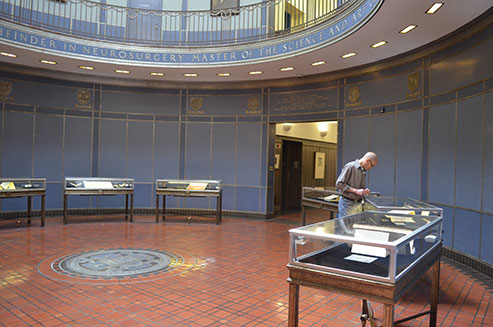
Restore the Cushing Rotunda – $1,500,000
Giving Opportunities: Restore the Rotunda
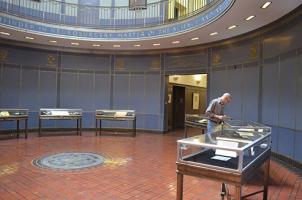
Restore the Cushing Rotunda – $1,500,000
Finn Fridays are back in 2016
Share Your Story about the Library
We are collecting your stories about the Library. Send us a brief (or long!) comment about the Library as you have experienced it, whether it be a favorite staff member, a valuable research partnership with a librarian, an object or book in our collection, or a memorable event. Submitted stories may be featured on the Library website.
Contest Winners for "Discovering the Beauty of Science"
The Cushing/Whitney Medical Library celebrates 75 years
Library closed Monday, January 18 for MLK Day
Beaumont Club Lecture on "Historical Illustrations of Skin Disease" Exhibit, Friday, January 15
What's a guide? And how can Yale library guides help me?
DatabasE of genomiC varIation and Phenotype in Humans using Ensembl Resources (DECIPHER)
Exhibit: "Deaf: Cultures and Communication, 1600 to the Present"
Qualtrics, an online survey tool
YSM theses now available through EliScholar
Yale Physician Associate Program recognizes 3 librarians
Holiday hours for 2015
Get your overdue book fines waived! Food for Fines December 9-16
Friday, December 11 is Finn's last visit of 2015
Finn & Krista off today, December 4
75 years: A Celebration
The Harvey Cushing/John Hay Whitney Medical Library celebrates 75 years since its founding with a variety of events for our patrons and friends:
Humanities in Medicine Collection
Happy Holidays!
World AIDS Day: HIV/AIDS Information on the Web and at Yale Libraries
Do not let Excel to deplete your gene list
Child Abuse Atlas
Provides information to assist health care providers in recognizing the physical signs of child abuse including examination techniques, evidence-based research and literature reviews, case studies and the ability to add cases.
Create an account using your Yale email address.
GIDEON: Global Infectious Diseases & Epidemiology Network
Great American Smokeout: Key Info Resources
Finn #2 Sunday Schedule
Special Finn Friday Birthday Party! This Friday, November 13th, noon to 2pm
Trial for new apps: EBM Guidelines, DSM 5 Differential Diagnosis
The Bamberg Surgery: An early European surgical text
The Yale MeSH Analyzer
Finn, our second therapy dog returning Sunday, November 8th @ 3:30pm
Interlibrary loan is back up (update)
Librarian's Discretionary Fund
An unrestricted gift to the Librarian's Discretionary Fund provides the Director of the Cushing/Whitney Medical Library invaluable flexibility to strengthen current programs, to respond to unforeseen financial needs, but most importantly, to seize new opportunities to serve researchers, clinicians, and scholars.
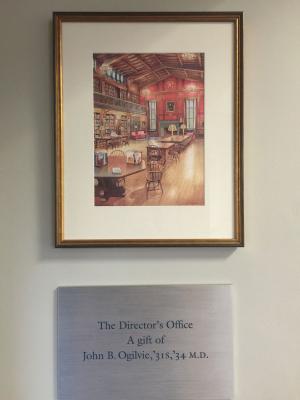
Get your omics functional analysis done: upcoming trainings on Ingenuity Pathway Analysis and MetaCore
Giving Opportunities: Other Opportunities
Computer-Assisted Instruction
Create a fund to procure and develop computer-assisted instruction programs to enhance teaching and self-directed learning at the School of Medicine ($100,000)
Mobile Teaching Unit
A cart equipped with wireless laptops will facilitate hands-on teaching by faculty and students anywhere in the School of Medicine ($15,000)
Giving Opportunities: Library Spaces

Restore the Cushing Rotunda – $1,500,000
Giving Opportunities: Collections
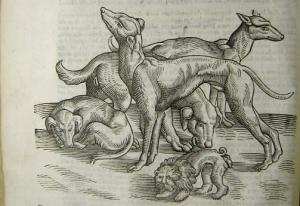
Adopt a Rare Book
Help to protect the extraordinary Cushing/Whitney Historical collection and ensure its existence for future generations of scholars and students by making a gift to this project and adopting a rare book. ($4,000-8,000 per book)
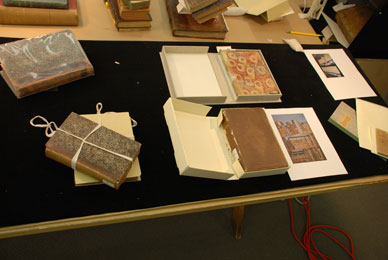
Open Access Week, October 19-25
Picturing Medical History: the Hansen gift
October is National Medical Librarians Month!
Founder's Day activities at the Medical Library
Get help with data from the Research Data Consultation Group
Extended Library Hours! Opening 7:30 am Monday-Friday.
IPA unavailable this weekend
Digital Collections unavailable September 23, 7:30am-noon
Fall exhibit: "Historical Illustrations of Skin Disease: Selections from the New Sydenham Society Atlas 1860-1884," opening September 17
Statistical Consultants Schedule for Fall 2015
Fall Semester GIS support
Labor Day 2015 hours
August 28 11am Cushing Center tour cancelled
Finn, Library Therapy Dog, Returns September 4
NCBI's SmartBLAST
New discount for Yale authors on article-processing charges
Tips for new students: Personal librarians, booking study rooms, and more
Fall 2015 classes and training at the Medical Library
Digital Collections are back online
Digital Collections temporarily unavailable
Scheduled Service interruption for Elsevier products on August 1
Day of Data 2015 Call for Posters
Follow the Medical Historical Library on Instagram, Twitter, and Pinterest
On display until July 30th! Children’s Medical Literature, 1950s-1990s
Requesting Medical Historical rare books and materials online
New point of care tool: DynaMed Plus
Training Sessions - Summer 2015 at the Cushing/Whitney Medical Library
July 4 weekend hours
Audio Digest
Offers audio CME and CE courses as well as files on many current issues pertinent to a variety of specialties.
New Acquisitions: Posters on Social Justice and Medicine by Rachael Romero
Ovid Personal and proxy server accounts briefly unavailable tomorrow, June 22
Possible disruptions to online access, Sunday, June 14
QIAGEN Clinical Insight®: new tool for clinical labs interpreting and reporting on genomic variants
Scopus temporarily unavailable
Medical Historical Librarian profiled in Yale Medicine
Request Materials
Researchers can request locked Medical Historical Library books through Orbis and Quicksearch. Please do this for access to locked stacks materials, to use in the Medical Historical Library Office/Secure Reading Room. These collections do not circulate.
Once in Orbis, click the following link:

Cushing Center featured in Atlas Obscura
Library closed May 25 for Memorial Day
2013-2014 Annual Report now online
In memory of Lynn Sette
Extended Hours will end on Thursday, May 14th
Finn's last visit for spring/summer is May 1
New edition of Harrison's Principles of Internal Medicine
Board games now available for check out
YSM Reunion Weekend - May 29-31, 2015
Discovering the Beauty of Science: Call for Entries
BIOBASE TRAINING WORKSHOP
Humanizing a Historic Brain Collection
67th Annual Associates Lecture
National Center for Biotechnology Information workshops broadcasted from the University of Michigan Medical Center
MLA awards 2015 Louise Darling Medal to Yale partner HINARI
Free CME courses now available through Henry Stewart Talks
Access to Electronic Books and Journals via ClinicalKey
New guide to Open Access initiatives supported by Yale Library
Citation Management
Popular Citation Managers
Extended Hours Starting March 1st
Library website update: New dropdown menus to launch February 20
Quicksearch Beta: A new library search tool
Furniture upgrades and noise on February 11
Early closing, Monday, January 26
New Biosketch Format Required for NIH Applications Submitted on or After May 25, 2015
Apply for a Research Travel Grant!
Finn Friday returns!
Library closed January 19
We Loan Technology
New Resources: Bates and Medlantis
MedOne Radiology
A comprehensive reference for medical imaging specialists containing extensive case libraries, diagnostic, and procedural guidelines.
Spring 2015 exhibits opening this month
POSTPONED: Know the monster you’re fighting: stigma as a barrier to quality healthcare
Stigma and discrimination are barriers to quality health care for people with many conditions that are stigmatized by our society. This talk will discuss how stigma works in health care settings, the stigma research for three conditions (Obesity, Mental illness, and HIV/AIDS), and how to reduce stigma in healthcare practice.
Pharmaceutical Potions : A Review of Potions and Pharmaceutical Agents for Contemporary Wizards and Muggles
Find out about the mystery, allure and role of potions in both fictional and everyday life. Come and hear about the utility of potions in the Harry Potter Series, and how J.K. Rowling made them so believable. Examine the history of potions and pharmacognosy of medicines, and trace their fictional and nonfictional evolution thru the ages and how we continue to fit them in everyday life and medicine.
Welcome to the library's new homepage!
YUL Ball & Exhibit Opening
Join us at the YUL Ball and Exhibit Opening of "Harry Potter's World: Renaissance Science, Magic, and Medicine" brought to you by the National Library of Medicine, National Institutes of Health.
Come explore Harry Potter's world and its roots in medicine and science while sharing "cauldron cakes," "butterbeer," and other magical treats. Costumes are encouraged so come as your favorite Harry Potter character.
Using Interactions with Animals to Reduce the Burden of Mental Illness
Less than one third of those in need of mental health services receive any kind of treatment. Animal-assisted interventions may be an effective and efficient solution to improve mental health on a large scale. This talk will cover the theoretical and empirical bases for using interactions with animals to reduce stress and promote mental health across a range of populations. I will cover key advantages of human-animal interaction as a form of treatment, and highlight our recently completed evaluation of the animal visitation program at the Yale School of Medicine.
Mind-Reading: Animal Minds and Magic
Professor Santos will discuss her recent work using "magic" looking tasks to study how animals think about the world. She'll reveal some surprising similarities in the ways that animals think.
New library homepage: What you need to know
Herbology: Looking at Food as Medicinal, and Medicinals as Food
Harry attended herbology class, as did Neville – everyone’s favorite underdog in the series. And just as this class proved useful for them (gillyweed!), perhaps this conversation will provide some handy pointers for you too. Come learn about -- and taste -- some of the potent plants already growing at Yale’s farms, and explore the continually blurring nature behind what is good for you and what is simply delicious.
Implementation of the Genomic Data Sharing Policy Begins January 25, 2015
Library homepage redesign: Your input is needed!
Staff Quick Links
- Airtable for evidence synthesis: link and documentation
- A-Z List
- Borrowing and Access Privileges
The Cushing Center
This brief video produced by Doug Forbush and the Yale Broadcast and Media Center tells the story of one of the most important names in neurosurgery: Dr. Harvey Cushing. How did his unique collection of medical specimens come to reside at the new Cushing Center at the Yale School of Medicine?
New Database Trials from Thieme and McGraw Hill
Systematic Review Services at the Medical Library
Incidence and Prevalence Database
Offers epidemiology-related topics such as disease incidence, prevalence, morbidity, mortality, trends, cost, risk-factors, and disease classifications for both developing and developed nations.
Electrosurgical in the Operating Room
Tips for new students: Booking study rooms, off-campus access, computing help
Africa-Wide Information
Produced by NISC South Africa, it combines bibliographic databases from around the world to form a multidisciplinary aggregation offering coverage of all facets of African studies.
(UPDATED) Fall hours for Finn, the Medical Library's therapy dog!
Medical Historical Library Staff
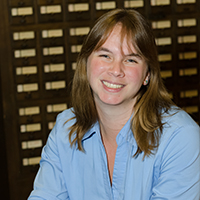
Melissa Grafe, Ph.D.
John R. Bumstead Librarian for Medical History
Head of the Medical Historical Library
203-785-4354
melissa.grafe@yale.edu
About the Associates
About
Mission Statement
Established in 1948, the Medical Library Associates have supported the medical library for over 70 years, helping enable its world-class services to the faculty, staff and students of the Yale Medical Center, today and for generations to come.
Make a Gift Now
Online
Your gift will provide flexible support to the Cushing/Whitney Medical Library.
Endowed Positions
Director
The primary focus of the Director position is to ensure that the library, both now and in the future, is valued by users as a center of excellence that provides the necessary information services and resources to support their clinical, research, and educational goals. The Director provides leadership, and is responsible for the overall administration, organization and development of the library. ($3 million)
Giving Opportunities to Ensure Our Future
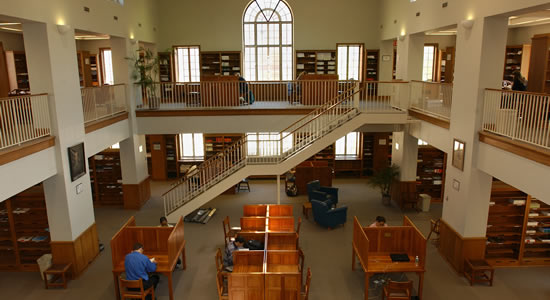
Morse Reading Room
Enhance this beautiful and heavily used room so that it is an inviting oasis optimized for quiet study and reflection. Update and modernize furniture, paint walls and replace carpet, and install automatic doors and gentle closers to limit external noise ($300,000)
Giving Opportunities to Preserve Our Past
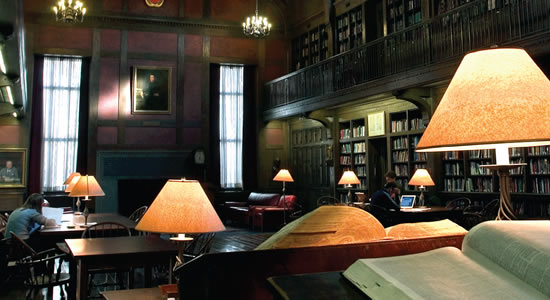
Collection Preservation
Long-term care of the physical collections requires the equipment necessary to perform preservation and conservation activities in-house. ($100,000)
Giving to the Library
“So when a doctor finds himself lost or astray over some difficult problem, there’s just one thing for him to do. To betake himself to a library, a place whence knowledge radiates, there to get a fresh start. The soul of an institution comes to reside in the library.” - Dr. Harvey Cushing
YNHH Journal Club
Journal Club Toolkit
Renovated CRL reopens as the 24/7 Computer & Study Space
Important Changes to the Printing/Copying System
YaleLinks & Journal List: New Look
Clinicians' Study Center Opens on the Saint Raphael Campus
Access Denied
You don't have access to this particular page. If you think you've received this message in error, please contact the Medical Library webmaster and we'll look into it for you.
Page Not Found
Oops! The page you're looking for has moved. Try searching for your content here. BUT FIRST, please help us fix the broken page!
Kenny Marone retires
John Gallagher, Interim Medical Library Director
Staff Updates: New Biomedical Sciences Research Support Librarian
Staff Updates: New Evening/Weekend Supervisor & Reference Librarian
Staff changes at Medical Library
Medical Library Annual Report published online
Happy 145th Birthday Harvey Cushing!
The Cushing Center: “Insightfully beautiful”
ORCID: Connecting Research and Researchers
"The Perfect Man" on view in the Library
Finn's Schedule
Stephen E. Malawista, M.D.: A Lifetime of Research at Yale
A Cure for What Ails You: Songs from the Medical Library’s Sheet Music Collection
MedOne Neurosurgery
Neurosurgical books, illustrated procedures, images, videos, and case examples with management suggestions.
New Resource – Thieme eNeurosurgery
Finn the Therapy Dog
Secret Miracles of Nature
Ferenc Gyorgyey Research Travel Award
Delightful Delusions: A reflection on Jan Van de Velde’s “The Quack: Populus vult decipi” (1615-1641)
Books of Secrets: Alchemy, Medicine, and Magic
Diagnostic & Statistical Manual of Mental Disorders 5
FirstConsult: point-of-care App for your iPhone or iPad
National Center for Biotechnology Information (NCBI) BioSystems Database
UpToDate Anywhere
James Rothman, 2013 Nobel Prize Winner
Iconographie photographique de la Salpêtrière: The Physician and the Hysterical Women
The Medical Library to Cancel QUOSA Subscription
Due to the continued expense of QUOSA, the continued tight collection development budget at the Cushing/Whitney Medical Library, the small number of active QUOSA users, and the availability of alternative, more cost-effective tools such as EndNote, the Medical Library has cancelled its subscription to QUOSA.
Nursing at 90
Grant Forward
Clinical Evidence
New Medical Library Exhibits
A Vietnam War Surgeon Writes Home
Access Medicine
Unveiling Medicine’s Past: Medical Historical Collections Online
New Reading Room
The Crack Up by Corporal Wayne Seese
Clinical Key
Over 2600 International Health and Safety posters at the Medical Historical Library
We've Still Got A Job To Do!
Together, We Remember
Exam Master Online
A study tool for health science students preparing for board exams.
Clinical Human Embryology
Explores how the human body develops from a single-cell fertilized egg to the complex set of organ systems seen in the newborn. Clinical cases of congenital malformations or syndromes are used to introduce and highlight key sequences in normal development.
Anatomy Clinic
Virtual anatomy lab developed by faculty at the Yale School of Medicine. Useful for researchers in surgery.
Exhibit: War
"Nearly Well"- the story of Civil War soldier Robert Butcher
Clinical Trial Information
Portraits of Wounded Bodies
BYOM* Study Break
Database Reloads and Updating
GIDEON
WorldCat
WorldCat (FirstSearch interface, recommended for library staff)
WorldCat.org (Recommended for all other users)
An online catalog of books and other materials held in more than 10,000 academic, public, special and national libraries around the world.
Trip Pro
Simultaneously searches evidence-based sources of systematic reviews, practice guidelines, and critically appraised topics and articles. Results are color coded based on the EBM pyramid.
Springer Protocols
Allows users to search for biomedical and life science research protocols.
Scopus
Peer-reviewed abstracts and citations in science, technology, medicine, social sciences, and arts and humanities plus conference papers and book chapters.
PubMed@Yale
A collection of biomedical citations from MEDLINE and PubMed Central provided by the U.S. National Library of Medicine.
APA PsycBOOKS - Ovid
Contains scholarly book titles published by the American Psychological Association (APA) from 1953-present, approximately 50 classic books in psychology dating from the early 19th century, and the APA/Oxford University Press Encyclopedia of Psychology.
OMIM
Online Mendelian Inheritance in Man catalogs human genes and genetic disorders. Contains images and reference information.
NTIS (National Technical Information Service)
Data services for federal agencies through joint venture partnerships with the private sector.
NLM LocatorPlus
Catalog of books, journals, and audiovisuals and access points to other medical research tools.
NetAnatomy
Teaches human anatomy to students of the health professions, including undergraduate medical, health sciences, and nursing students.
NCLEX-RN
Quality review questions reflecting the National Council of State Boards of Nursing's test.
MEDLINE - Ovid
Biomedical bibliographic information for clinical medicine, health care, and nursing.
Mental Measurements Yearbook with Tests in Print
Guide to contemporary testing instruments and evaluations to test products.
Medical Heritage Library
A digital collection promoting free and open access to quality historical resources in medicine.
Litt’s D.E.R.M. Database
Search the profiles of generic and trade name drugs and provides references that link directly to PubMed. Covers adverse reactions from all angles as well as identifies potentially hazardous drug-drug interactions.
Index Catalogue of the Library of the Surgeon General's Office
Online version of the Index-Catalogue of Library of the Surgeon-General’s Office, covering the dates 1880-1961. The interface mimics the printed pages and includes all citations from the original artifact.
HSTAT (Health Services/Technology Assessment Texts)
A service of the National Information Center on Health Services Research and Health Care Technology (NICHSR) at the National Library of Medicine that provides a range of publications to provide health information and support healthcare decision-making.
History of Science, Technology, and Medicine
Includes articles, conference proceedings, books, dissertations, serials, maps, and other related materials across a broad set of subjects reflecting the influence of science, technology, and medicine on society and culture throughout time.
Henry Stewart Talks
Specially prepared animated audiovisual presentations with synchronized narration by leading scientists.
Guideline Central
Free access to thousands of current clinical practice guidelines and guideline summaries.
Global Health - Ovid
Offers information in multiple languages from a wide range of countries on topics such as communicable diseases, tropical diseases, parasitology, human nutrition, public health, and medicinal and poisonous plants.
GIDEON
Assists in diagnosing infectious diseases and staying current on the latest trends in epidemiology and treatment.
GQuery (Global Cross-database NCBI search)
Integrates information from databases at NCBI which include nucleotide sequences, protein sequences, macromolecular structures, whole genomes, and MEDLINE.
eLS (Encyclopedia of Life Sciences)
Collection of articles in the fields of biochemistry and physiology, cell biology, developmental biology, ecology, evolution, genetics, immunology, molecular biology, neuroscience, microbiology and virology, plant science, structural biology, science and society.
Embase - Ovid
A tool to access the biomedical literature, including journals indexed in MEDLINE and proceedings from many conferences.
eEROS (Encyclopedia of Reagents for Organic Synthesis)
A database of over 48,000 reactions and approximately 3,500 of the most frequently consulted reagents. After connection,you will need to install two plugins to utilize the structure drawing capability.
DocCom
Demonstrates key physician/patient communication skills via video encounters with standardized patients to help learners develop sensitivity to differing communication styles and difficult situations. Register with your Yale email address.
Dissertations & Theses Global
Contains entries with information about doctoral dissertations and master's theses. Titles published since 1997 are available in PDF format.
Current Protocols
Provides details of lab methods, step-by-step techniques useful to molecular biology and protein science investigations.
Current Contents Connect
Provides access to complete tables of contents, bibliographic information, and abstracts from recently published issues of leading scholarly journals, as well as from relevant, evaluated websites.
CHEMnetBASE
Includes several chemical dictionaries, and the CRC handbook of chemistry & physics.
Zoological Record
Covers all aspects of modern animal research, including: behavior, biodiversity, conservation, ecology, evolution, genetics, habitat, morphology, nomenclature, parasitology, physiology, reproduction, taxonomy, and zoogeography.
Ulrichsweb.com
Essential serials bibliographic and access information that ranges from subscription rates to the latest web sites.
PEP Web Archive (Psychoanalytic Electronic Publishing)
Contains a comprehensive array of the psychoanalytic literature dating back to the early 1900s.
NatMed Pro
Information about natural medicines, including herbs, dietary supplements, sports supplements, minerals, and vitamins.
Leadership Library, The
A personnel contact database of the institutional leadership of the United States, integrating 14 "Yellow Book" directories with information on more than 400,000 individuals leading U.S. government, business, professional, and nonprofit organizations.
Journal Citation Reports
Presents quantifiable statistical data that allows users to determine the relative importance of journals within a field – particularly in science, technology, and social sciences.
HAPI (Health and Psychosocial Instruments) - Ovid
Information on measurement instruments in the health fields, psychosocial sciences, organizational behavior, and library and information science and helps users identify measures needed for research studies, grant proposals, client/patient assessment, class papers/projects, theses/dissertations, and program evaluation.
GenBank
Annotated database of genetic sequences maintained by the National Institutes of Health and searched through Entrez.
CogNet (MIT Press)
Brings together current and classic resources in the field and provides services and utilities to enhance research, collaboration and teaching. Only abstracts are available for non-MIT affliated journals.
Cochrane Library
A collection of databases for high-quality, independent evidence to inform healthcare decision making.
Databases included: Cochrane Database of Systematic Reviews; Cochrane Central Register of Controlled Trials (CENTRAL); and Cochrane Clinical Answers (CCAs).
ClinicalTrials
Provides easy access to information on publicly and privately supported clinical studies on a wide range of diseases and conditions. Maintained by the National Library of Medicine (NLM) at the National Institute of Health (NIH).
Award winning film "Twero: The Road to Health" Showing on Nov. 5th
POPLINE
CINAHL
A comprehensive source of full-text nursing & allied health journals. It also provides access to health care books, nursing dissertations, selected conference proceedings, evidence-based care sheet and quick lesson disease overviews, and continuing education modules.
Cardiosource Plus
Enables cardiovascular professionals to easily stay up-to-date with the most relevant research findings and best practices.
Free personal registration is needed for some content and several premium services require an additional fee.
CAB Abstracts
Covers the significant research and development literature in the applied life sciences. Coverage dates back to 1973.
Books at Ovid
Includes the full text, references, updates, and graphics from some of the most respected sources in medicine, nursing, and pharmacology.
BIOSIS/Biological Abstracts
Covers of botany research and literature references from all of the life sciences.
Bates' Visual Guide to Physical Examination
A teaching resource consisting of anatomy and system specific videos. It showcases a broad spectrum of ages and cultural backgrounds and includes information on health history, documentation and patient/practitioner interactions.
AMED
Covers journal articles on allied and alternative health. Its thesaurus was produced by the Health Care Information Service of the British Library and contains over 2,500 terms based on MeSH (Medical Subject Headings).
Academic Search Premier
Provides full text for journals, including full text for peer-reviewed titles (multidisciplinary).
Beaumont Medical Club Lecture on October 26
Exhibit: Medicine at Work
Exhibit: Nurses
The Cochrane Library: New Search Interface
Privileges for Medical Library Associates
Medical Library Associates privileges are based on membership level
| Membership | Contribution | Privileges |
|---|---|---|
|
Lifetime
|
$1,500+
|
The New Haven Green: Heart of a City
Embase Available from the Medical Library
Yale School of Medicine Bicentennial Collection
In preparation for the Bicentennial of the Yale School of Medicine in 2010, we are digitizing photographs of Yale medical classes, deans, departmental chairs and other faculty, departmental photographs, and buildings and other facilities. We hope these images may be incorporated into historical lectures and Yale departmental histories.
Postcard Collection
This collection of postcards from the Historical Library features medical institutions in Connecticut: general hospitals, private hospitals, psychiatric hospitals, sanatoria, and the Yale School of Medicine. Most are from the period 1900-1940.
George E. Palade EM Slide Collection
The images in this collection are derived from high resolution scans of glass 3.25 X 4 inch "lantern slides" that were part of a large collection of slides covering his years at the Rockefeller University and Yale University School of Medicine. These selected images were scanned by James D. Jamieson, M.D., Ph.D., a student of Palade.
Portraits and Likenesses Collection
Portrait and Likenesses Collection
Exhibit: Food and Nutrition Posters
Exhibit: Grant Wood's "Family Doctor" and More
Exhibit: Maternity Care in Pictures
Tutorials
Welcome to the Cushing/Whitney Medical Library
The Encyclopedia of Biostatistics Now Online
Yale Students Going Global
Learn the Basics of EndNote
The Drs. Coleman at Yale - a New Collection for Research
Last few days to view exhibit
Brain Tumor Registry Timeline
Brain Tumor Registry Timeline
|
Year |
Timeline Event |
|
1902 |
Letters From a 19th Century Homeopath
NIH Clinical Research Trials and You
30 Day Trial to JAMAevidence
Library Services for Yale Affiliated Hospitals Program Institutions
(Bridgeport Hospital, Danbury Hospital, Gaylord Hospital, Greenwich Hospital, Griffin Hospital, Lawrence & Memorial Hospital, Norwalk Hospital, St Mary’s Hospital, St. Vincent’s Hospital, Waterbury Hospital)
What am I eligible for?
- Library access
- On-site use of electronic resources when rotating through YNHH
- Use of book and journal collection
Borrowing
May purchase borrowing privileges:
African American History Month
Read. Review. Write. Edit. Be a Part of the YJBM
Online Newspapers from over 50 Countries
Recent Acquisitions on view in the Library
Requesting Articles Gets Easier
Center for Science and Social Science Information
Gift in Kind
The Cushing/Whitney Medical Library is grateful to individuals and departments who have enriched our collections through the years with book, journal, and material donations.
Historical Materials
For materials published before 1920, please contact Melissa Grafe (melissa.grafe@yale.edu), Head of the Medical Historical Library.
A Busy Day in the Cushing Center
New Subscription to all sections of JoVE
Oxford Medicine Online Trial through mid-February
Science Classic: the Digital Archives of Science
Clinical Alert from the NIH
In the Know: Medical Resources @ Your Fingertips
The Centennial Exhibit of the Yale Child Study Center
U.S. Food Administration Posters from World War I
Anti-Drug and AIDS Awareness Posters
Colloquium Digital Library of Life Sciences – New Resource
Persian Manuscript Note Cards
2010 data from Journal Citation Reports
Suggest a Purchase
Your request will be evaluated by the Collection Strategies Librarian, in consultation with the relevant Departmental Librarian and the Collection Development Committee.
Our criteria for selecting your recommendation is based on scope of the recommended item, budgetary considerations, topic's demand, potential users, etc. We appreciate your suggestion.
* Required Fields
Two Hundred Years of Medical Education at Yale
National Library of Medicine Celebrates its 175th Anniversary
Writing Guide
APA
APA 7th Resources:
Address & Directions

YSN COMMONS ADDRESS: YSN Commons, First Floor, Room 11708, 400 West Campus Drive, Orange, CT, 06477
YSN ADDRESS: 400 West Campus Drive, Orange, CT 06477
(You may also see the address & directions of the Cushing/Whitney Medical Library.)
About the Nursing Library

Nursing library services are provided to Yale School of Nursing faculty, students, and staff through the Cushing/Whitney Medical Library. The Medical Library has a rich collection of both print and electronic materials available at 333 Cedar Street and on the Medical Library website.
Ask a Nursing Librarian
Please fill out the form for questions.
Email Us Your Questions
Reproduction Orders
The library offers a wide range of photoduplication services for materials in its collections to assist scholars in their research. See services and prices below. To order reproductions, please send an email with as much information as possible to historical.library@yale.edu
Ask the Historical Library
All questions will be answered in the order that they are received.
Medical Commemorative Medals Finding Aid
| Subject | Drawer No | Occasion | Company | Date | Size | Obverse | Reverse |
|---|---|---|---|---|---|---|---|
| Abbott Laboratories |
Manuscript Collections of Yale Faculty
Manuscript Collections of Yale Faculty in Medicine, Nursing and Public Health Held by Manuscripts & Archives
This is a partial listing of manuscript collections of Yale medical, nursing and public health faculty located at Manuscripts & Archives, Sterling Memorial Library, Yale University.
Electronic Texts in the History of Medicine
You will find most of our digitized texts in the Medical Heritage Library, a collaborative of major medical historical collections in the United States and beyond. However, the following books represent some of our earliest digitization efforts. With the collaboration of Richard H. Siderits, M.D., of the Robert Wood Johnson University Hospital at Hamilton, New Jersey, the Historical Library made available several popular medical texts from the 15th through 18th centuries.
Manuscript Collections of Yale Faculty
Manuscript Collections of Yale Faculty in Medicine, Nursing and Public Health Held by Manuscripts & Archives
Bibliography of Yale Medical History
This bibliography was prepared from entries in PubMED, History of Science, Technology, and Medicine, and from other articles that have come to the attention of the compiler. The current listing no doubt has many important omissions. Part I lists a few basic sources on the history of the medical, nursing, and public health schools. Part II contains published obituaries or other biographical information on individuals, most of whom were Yale faculty members.
Books and Articles Related to the Historical Library
This bibliography contains books and articles that describe or utilize unique items in the Historical Library's collections. It includes bio-bibliographies based on our collections or which have been extensively used in past collecting. Users are welcome to suggest additions.
Research
Yale Resources
Yale-Related Materials
The official archives for the Yale School of Medicine is Manuscripts and Archives, Yale University Library. However, the Historical Library holds a large collection of Yale School of Medicine publications and photographs, as well as some manuscripts.
Prints and Drawings, and Historical Medical Posters
Prints and Drawings
The Cushing/Whitney Medical Library’s Collection of Prints and Drawings shows how artists have portrayed issues and events related to health and medicine over six centuries. It is one of the best known collections of its kind.
Objects and Artifacts
Edward C. Streeter Collection of Weights and Measures
Rare Books & Manuscripts
Discover our rare book collection by searching our library catalogs, either Orbis or Quicksearch.
Biographies and Collective Biographies
Biographies are books about one or two persons. Collective biographies are works (such as biographical directories) about more than two persons. They are shelved in the Morse Reading Room of the Medical Library on the balcony. Biographies have special call numbers that enable them to be arranged alphabetically by subject of the biography. These call numbers consist of Biog or Coll Biog and a letter or letters and a decimal number. Thus W334 precedes W4. The A's start in the back of the balcony, to the left as you come up the stairs, and continue clockwise.
Books & Manuscripts
The Historical Library houses a collection of manuscripts of historical significance from throughout the ages, as well as modern collections of importance. Current books in the history of medicine are located in the Historical Reading Room, either on the main floor or on the balcony. Biographies are shelved in the Morse Reading Room balcony. Most twentieth century reprints of medical classics currently housed in locked stacks CAN circulate. They may be checked out at the Circulation Desk for a period of two months.
Plan a Visit
Location
333 Cedar St, New Haven CT 06510 (inside the Medical Library in the Yale School of Medicine)
Office Hours
The Medical Historical Library office is open 10am-12pm, 1pm-4:30pm Monday-Friday, and by appointment after those hours.
Contact
The Ferenc Gyorgyey/Stanley Simbonis YSM’57 Research Travel Grant
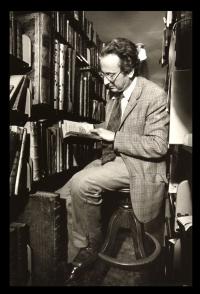
The Medical Historical Library of the Harvey Cushing/John Hay Whitney Medical Library at Yale University is pleased to announce its fifteenth annual Research Travel award for use of the Historical Library.
FAQ
Who can use the Historical Library?
The Historical Library is open to Yale students, faculty, and staff, and to visitors who are doing research. Students should be college level or graduate students.
What are the hours of the Historical Library?
The Historical Library offices are open Monday through Friday, 10-noon, 1:00 p.m. - 4:30 p.m., and by appointment outside of these hours. The circulating books in the Reading Room may be consulted or checked out any time the Medical Library is open.
Schedule a class, research session, or tour
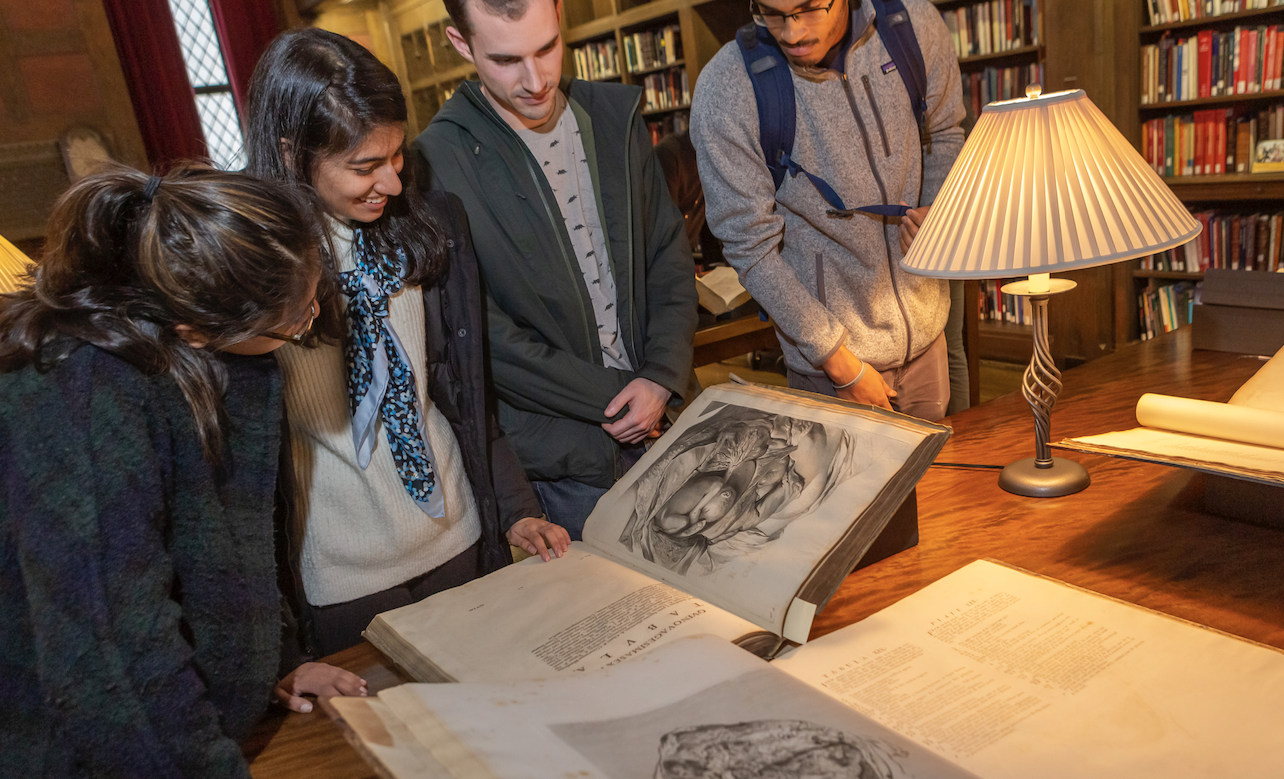 The staff of the Medical Historical Library welcomes researchers, classes, and visitors from inside and outside the Yale community.
The staff of the Medical Historical Library welcomes researchers, classes, and visitors from inside and outside the Yale community.
Film Showing at the Medical Library
Update on Mobile Device Apps
History and present state of discovery..
English chemist Joseph Priestley was the first person to isolate a number of gases, including oxygen. His first major science publication was The History and Present State of Electricity (1767), which gained him admission to the Royal Society; it was followed by The History and Present State of Discoveries Relating to Vision, Light and Colours (1772) which this copy is a first edition. In this volume Priestly pays careful attention to the history of optics and presented explanations of early optics experiments.
Treatise of the diseases of the chest
Rene Laennec was a French physician who, in 1816, invented the stethoscope. Using this new instrument, he investigated the sounds made by the heart and lungs and determined that his diagnoses were supported by the observations made during autopsies. Laennec is considered the father of clinical auscultation and wrote the first descriptions of bronchiectasis and cirrhosis and also classified pulmonary conditions such as pneumonia, pleurisy, emphysema, phthisis and other lung diseases from the sounds he heard with his invention.
Opticks
This volume, printed in 1717, is the first English edition of Newton’s Opticks. The publication of Opticks represented a major contribution to science. Opticks is a study of the nature of light and colour and the various phenomena of diffraction, which Newton called the "inflexion" of light. In this book Newton sets forth in full his experiments, first reported in 1672, on dispersion, or the separation of light into a spectrum of its component colours. Newton shows how colours arise from selective absorption, reflection, or transmission of the various component parts of the incident light.
On the Origin of Species
Charles Darwin’s On the Origin of Species, published on November 24th, 1859, is a seminal work of scientific literature, considered to be the foundation of evolutionary biology. Darwin introduced the theory that populations evolve over the course of generations through a process of natural selection. It presented a body of evidence that the diversity of life arose by common descent through a branching pattern of evolution. Darwin included evidence that he had gathered on the Beagle expedition in the 1830s and his subsequent findings from research, correspondence, and experimentation.
The works of that famous chirurgion Ambrose Paré
Ambroise Paré was a French surgeon and official royal surgeon for the Kings Henry II, Francis II, Charles IX and Henry the III. He is know as a leader of his time in surgical techniques and battlefield medicine, especially the treatment of gunshot wounds. Pare was also an anatomist, inventor of several surgical instruments and author of a treatise of monsters.
Treatise of such mathematical instruments
This first edition volume contains a complete description of a range of tools that are useful in mathematics, surveying, architecture, navigation, drafting, gunner, physics and illustration. It introduces the sector, a form of calculator that predates the slide rule, the gunner’s calipers, proportional compass and a variety of lesser known instruments. Highly detailed illustrations within the book show how to use the instruments.
An account of the voyages...
John Hawkesworth, An account of the voyages undertaken by the order of His present Majesty for making discoveries in the southern hemisphere : and successively performed by Commodore Byron, Captain Wallis, Captain Carteret, and Captain Cook, in the Dolphin, the Swallow, and the Endeavour : drawn up from the journals which were kept by the several commanders, and from the papers of Joseph Banks, esq; 1773, volume 1 of 3.
Geology and mineralogy
William Buckland and Nineteenth Century Natural Theology
In the 1830s, prominent British physicians and geologists authored eight volumes of the Bridgewater Treatises, commissioned by the will of the Earl of Bridgewater to illustrate “the Power, Wisdom, and Goodness of God in the Works of Creation.” The well-known surgeon Charles Bell contributed The Hand : Its Mechanism and Vital Endowments as Evincing Design (1833).
History of four-footed beasts and serpents
Topsell's The History of Four-footed Beasts (1607) and The History of Serpents (1608), were reprinted together as The History of Four-Footed Beasts and Serpents in 1658. An eleven-hundred-page treatise on zoology, Topsell's work repeats ancient and fantastic legends about actual animals as well as reports of mythical animals. Topsell, not a naturalist himself, compiled information from earlier authorities, most notably the Historiae animalium of the Swiss scholar Conrad Gessner.
Request a Book or Chapter Held at Yale
This form is for users who are not affiliated with Yale University or the Yale-New Haven Medical Center.
- Please use a separate form for each item requested (After completing a request, a button will appear for submitting additional requests).
- Books in our Hist/Med Locked collection are non-circulating. Search ORBIS, our online catalog, to determine availability and location of the item you need.
Request an Article Held at Yale
This form is for users who are not affiliated with Yale University or the Yale-New Haven Medical Center.
Please use a separate form for each item requested. After completing a request, a button will appear for submitting additional requests.
Ask a Librarian
Online questions from Yale affiliates will usually be answered within 1 business day. You may also call 203-737-4065 or 203-785-5354.
Research Guides
These guides are prepared by librarians to help you use library resources.
Search for Theses
-
Orbis, Yale Online Catalog
Search for all Yale theses using Orbis by including the words "Yale" and "thesis" as keywords in your search. Items cataloged in Orbis will have both a call number and a "handle" URL for the catalog record. Please include both if if you make an email inquiry about access.
-
Dissertations & Theses - Full Text
Educational Resources & Software
For more detailed information about biomedical education resources, please contact Judy M. Spak.
Educational Software
Mission & Values
Mission Statement
The Harvey Cushing/John Hay Whitney Medical Library provides access to an extensive array of information resources and tools, offers research assistance and expertise, and delivers meaningful services to our users, to support innovation and excellence in biomedical research, patient care, and the development of scholars and future leaders in healthcare.
Children and Young Adults in the Library
Children under the age of 14 will not be allowed in the library unless they are under the direct supervision of an adult caregiver.
If a child is left in the library without an adult present, staff will attempt to contact the child’s parent/caregiver. If that is not possible, the staff will contact Yale University Police.
Hours & Location
Hours
Guide to Research Impact
A comprehensive guide to measuring and broadening your research impact from the librarians at the Yale University Library.
Systematic Searches #1: Introduction
This series of tutorials cover the fundamental concepts and general procedure of searching the health science literature in a systematic manner. They will mainly focus on systematic searches required by a "systematic review". The goal of these tutorials is to ensure that your search is comprehensive, methodical, transparent and reproducible, so that your conclusions are as unbiased and closer to truth as possible. This first video of the series introduces the concept of "systematic review" and makes a rough comparison between a search done for a systematic review and an ordinary literature search.
EndNote Online Documentation
The official online documentation from EndNote.
NIH Public Access Policy Guide
General information and step-by-step instructions regarding the NIH public access law for Yale staff, faculty, and researchers.
Orbis Help Guide
This is the official Orbis help document. Everything you need to know about Orbis.
CINAHL Video Tutorials #1: Introduction
This is the first of the CINAHL video tutorials series, covering the access of CINAHL, setting up EbscoHost account, and an overview of the interface.
PubMed: Saving Searches with MyNCBI
The Saved Searches feature facilitates saving search queries for NCBI databases, and provides automatic e-mail updates for saved searches, which can be set up on a daily, weekly, or monthly basis.
Requesting Articles via YaleLinks
This tutorial demonstrates the fastest way of submitting document delivery requests (via YaleLinks).
Requesting Articles via YaleLinks
This tutorial demonstrates the fastest way of submitting document delivery requests (via YaleLinks).
Using YaleLinks
YaleLinks is an online full text direct linking service provided by the Yale University Library. This tutorial demonstrates how to use the YaleLinks services to quickly obtain online article full text.
PubMed Tutorial from the NLM
A comprehensive tutorial from the National Library of Medicine, covering a variety of topics, including searching, using PubMed services, using MyNCBI, etc.
Understanding Research Impact: Introduction
Nowadays, it is not uncommon for employers, academic institutions, and funding agencies to ask for evidence of your research impact before making important decisions, such as tenure promotions, academic honors, or grant awards. Therefore as a researcher, it is important for you to understand what research impact is, what you can do to document, enhance, measure and present your research impact to those decision makers. This series of videos will help you understand various metrics of impact, and how you can enhance your research impact and tell better "impact stories".
NIH Public Access Policy #1: Are you in compliance?
This video explains the NIH Public Access Policy that went to effect in 2008, and will be strictly enforced starting July 1, 2013. Under this policy, if a peer-reviewed journal article accepted for publication on or after April 7, 2008 arises from an NIH grant, the final peer-reviewed manuscript of the article must be deposited to NIH’s PubMed Central upon acceptance for publication and must be made available to the public no later than 12 months following publication. This video demonstrates the "My Bibliography" feature of the "My NCBI" account linked with your "eRA Commons" account, which can be used to check the compliance statuses of your NIH grant-funded articles.
Systematic Searches #2: Conducting a systematic review
To put the rest of the videos in perspective, this video shows the typical process of a systematic review, and where searching fits in the big picture.
EndNote.com Tutorials Library
Official training videos from EndNote.com.
CINAHL Video Tutorials #2: Formulating Your Questions
This tutorial teaches how to formulate, using the PICO model, a focused, well-built question for an effective, exhaustive literature search in CINAHL.
Journal Title Search in Orbis
This tutorial teaches how to perform a journal title search in Orbis. This is a quick way of locating a known journal in Orbis.
Journal Title Search in Orbis
This tutorial teaches how to perform a journal title search in Orbis. This is a quick way of locating a known journal in Orbis.
Requesting Articles via YaleLinks
This tutorial demonstrates the fastest way of submitting document delivery requests (via YaleLinks).
PubMed Quick Tour Video Series from the NLM
Short video tutorials from the National Library of Medicine on selected topics on using PubMed, the MeSH Database, and MyNCBI.
EndNote Essential Training #1: Introduction
This is the first of a series of videos on how to use EndNote to manage citations, full-text PDFs, and write papers. This video introduces the general interface of EndNote, how to change the screen layout, and how to change the way references are displayed.
Quantitative Metrics of Impact: Article Level
This video introduces the traditional quantitative metric of potential impact at the article level, the citation count, and altmetrics, which is a reaction to traditional bibliometrics. The video includes examples for each metric, and discusses their advantages and controversies.
NIH Public Access Policy #2: How to comply?
This video demonstrates how to make sure that your NIH-funded articles are compliant with the NIH public access policy. Specifically, it shows what to do if your article gets a non-compliant status ("red dot").
Systematic Searches #3: Preparing for a Systematic Search
This video demonstrates a number of tasks reviewers usually do before performing a full-scale systematic search. For example, a preliminary search is usually conducted to find out if anyone else has done a review on the topic before. Reviewers also do "scoping" searches or "pearl-growing" searches to better understand existing primary studies on the topic. These techniques also help develop a list of search terms that can be used in the full-scale search. Finally this video gives examples of online databases, which reviewers may search depending on the subjects of their topics.
CINAHL Video Tutorials #3: CINAHL Headings (Part I)
This tutorial introduces the CINAHL Headings system used in the CINAHL database - what it is and why it helps conduct a better search in the system.
CINAHL Video Tutorials #10: Saving Searches as Alerts and RSS Feeds
This tutorial demonstrates how to save your search strategy / history as an email alert or RSS feed, which allows you to keep current with new research developments of your topic. This video also wraps up the CINAHL Video Tutorials series.
Exporting References from PubMed to EndNote and RefWorks
This tutorial demonstrates the process of exporting PubMed search results to EndNote and RefWorks.
Book Title Search in Orbis
This tutorial teaches how to do a quick lookup for a known book using the title search functions of the Orbis Catalog. This is part of the Library 101 Tutorial Series.
Book Title Search in Orbis
This tutorial teaches how to do a quick lookup for a known book using the title search functions of the Orbis Catalog. This is part of the Library 101 Tutorial Series.
EndNote Essential Training #2: Importing References
This video demonstrates the process of importing references to EndNote from bibliographic databases, such as PubMed, Ovid MEDLINE, the Web of Science, Scopus, CINHAL and Google Scholar. I also demonstrate how to import book references from catalogs such as Yale's Quicksearch and WorldCat, and how to convert a book reference into a book chapter reference. Finally I demonstrate how to "group edit" imported reference to add additional information to them.
Quantitative Metrics of Impact: Journal Level
This video looks at various journal-level metrics of research impact as reported in tools such as Thomson Reuter's Journal Citation Reports and Elsevier's Scopus.
Systematic Searches #4: Building Search Strategies (Part I)
This is the first of several videos demonstrating how to build good search strategies in databases. This video introduces basic concepts in searching, such as controlled vocabularies. This video uses PubMed and MeSH (Medical Subject Headings) in its example searches.
CINAHL Video Tutorials #4: CINAHL Headings (Part II)
This tutorial covers CINAHL headings tree structure, exploding a heading, using a heading as a major concept, and subheadings.
PubMed: Saving Searches with MyNCBI
The Saved Searches feature facilitates saving search queries for NCBI databases, and provides automatic e-mail updates for saved searches, which can be set up on a daily, weekly, or monthly basis.
EndNote Essential Training #3: Importing References into EndNote from within EndNote
This video demonstrates how to run simple searches directly from within EndNote to locate and import a reference from databases such as PubMed, the Web of Science, Library of Congress catalog, and the Yale University Library catalog. This works best if you need to import known references one by one, especially if you have the unique identifiers of the references, such as PMIDs.
Quantitative Metrics of Impact: Author Level
This video introduces quantitative metrics of research impact at the author level, especially the h-Index, its limitations, and the alternative metrics proposed to overcome the limitations.
Systematic Searches #5: Building Search Strategies (Part II)
This video continues to introduce basic concepts in building searching strategies, such as free-text (natural language) searching, phrase searching, truncation, Boolean logic, and limits. This video continues to use PubMed as the example database.
CINAHL Video Tutorials #5: Combining and Limiting Searches
This tutorial teaches how to combine searches using Boolean operators and how to set common limits on searches, such as age groups, time spans, publication types, etc.
Finding Evidence in PubMed
This page details the various ways of finding evidence-based literature in PubMed.
EndNote Essential Training #4: Manually Creating References
When a reference you want is not importable from any database, it is necessary to create it by hand in EndNote. This video demonstrates the process, and things to pay attention to when doing so. Finally, this video demonstrates how to create a reference for a web page, the most common manually created references in EndNote.
Telling Impact Stories
This video introduces the Becker Model and how to use its list of indicators of impact to tell impact stories.
Systematic Searches #6: Building Search Strategies (Part III)
This and the next videos continue to demonstrate, using OvidSP MEDLINE as the example database, the basic concepts in building searching strategies. It also introduces OvidSP's unique command line query syntax and a number of search features that are not available in PubMed, such as wildcard searching and adjacency / proximity searching.
CINAHL Video Tutorials #6: CINAHL Search Result Display
This tutorials covers the search result display of CINAHL, including how to save, email, print search results, and how to find full text of articles.
Verifying Citations Using Single Citation Matcher
This tutorial teaches how to use PubMed's Single Citation Matcher to verify a citation. This tutorial is part of the Library 101 Tutorial Series.
EndNote Essential Training #5: Writing Papers with Cite While You Write
This video demonstrates how to use the "Cite While You Write" plugin for Microsoft Word to insert citations to and generate bibliographies in a Word document, how to easily switching to different output styles, and how to generate bibliographies independent of a paper.
Visualizing Research Impact Data
This video introduces various databases and tools which provide visualization graphs based on citation data. It also describes the general process of visualizing research impact data if you are to generate your own visualization graphs.
Systematic Searches #7: Building Search Strategies (Part IV)
This video continues to demonstrate, using OvidSP MEDLINE as the example database, the basic concepts in building searching strategies. In particular, proximity searches with the positional operator, frequency searches with the frequency operator, Boolean searches with the Boolean operators, and the various limit options in OvidSP are demonstrated.
CINAHL Video Tutorials #7: Exporting Searching Results to RefWorks
This tutorial demonstrates how to export search results from CINAHL to RefWorks, a popular web-base citation management application available at the Medical Library.
EndNote Essential Training #6: Additional Styles and Customizing Styles
This video demonstrates how to find additional or updated styles on endnote.com and add them to your EndNote program, and how to modify an existing style to suit your needs.
Enhancing Research Impact: Name Disambiguation
Author and affiliation name disambiguation is a major issue in collecting and evaluating research impact data, so a good way to enhance your research impact is to make sure your name and affiliation is as unambiguous as possible. This video discusses the ambiguity problem itself, ways to mitigate the problem, and long-term solutions such as the adoption of a unique ID system for researchers, such as ORCID.
Systematic Searches #8: Building Search Strategies (Part V)
This video continues to demonstrate, using the Web of Science and Scopus as the example databases, the basic concepts in building searching strategies. Unlike PubMed and OvidSP MEDLINE, these databases do not support a controlled vocabulary system.
CINAHL Video Tutorials #8: Exporting Searching Results to EndNote
This tutorial demonstrates how to export CINAHL search results to EndNote, a popular desktop citation management application. It covers step by step instructions for the Internet Explorer, Firefox, and Safari browsers on both Windows and Mac systems.
EndNote Essential Training #7: Managing Full-Text PDFs in EndNote
Over the years, EndNote has grown into not only a mature citation management program, but also a full-text PDF management program. This video demonstrates how to automatically download full-text PDFs for references in your EndNote library, how to import existing PDFs into EndNote and automatically find references for the imported PDFs, how to add your institution's OpenURL path to improve the accuracy in finding full text, and how to use other convenience features for PDF handling in EndNote.
Enhancing Research Impact: Preparing the Manuscript
This video discusses the things you can do when preparing your manuscripts for publication to enhance your research impact, such as choosing a good title, writing a good abstract, assigning keywords, and choosing a journal to publish in.
Systematic Searches #9: Using Filters and Hedges
Filters and hedges are prefab search strategies that can help you quickly search databases for articles on certain topics or those with certain study designs. This tutorial introduces the concept of filters and hedges, their validation process, and where to find existing filters and hedges.
CINAHL Video Tutorials #9: Saving Searches
This tutorial demonstrates how to save search strategy / search history permanently in CINAHL to allow retrieval and automatic rerun in the future.
Enhancing Research Impact: Sharing Your Research
Sharing your research work is very important in enhancing your impact. This video discusses the various ways to share and publicize different parts of the research work, such as manuscripts and data.
Systematic Searches #10: Finding Gray Literature
An exhaustive literature search, especially one that leads to a systematic review, needs to include searches in gray literature, to overcome, or at least minimize, “publication bias” or “reporting bias”. This video introduces the rationale for searching gray literature, and the common types and sources of gray literature relevant to health science research.
CINAHL Video Tutorials #10: Saving Searches as Alerts and RSS Feeds
This tutorial demonstrates how to save your search strategy / history as an email alert or RSS feed, which allows you to keep current with new research developments of your topic. This video also wraps up the CINAHL Video Tutorials series.
Exporting References from PubMed to EndNote and RefWorks
This tutorial demonstrates the process of exporting PubMed search results to EndNote and RefWorks.
Adding Web Pages to EndNote
This document provides step-by-step instructions on how to add the reference of a web page to your EndNote library.
Systematic Searches #11: Validating, Verifying and Revising Your Searches
A systematic search is an iterative one. We need to constantly evaluate, validate, or verify our search results, and revise and re-run the searches if necessary. This video introduces techniques in validating, verifying and revising your searches.
What is included in the CINAHL Evidence-Based Practice limiter?
This CINAHL support page from Ebsco explains the Evidence-Based Practice limiter in CINHAL.
Finding Evidence in PubMed
This page details the various ways of finding evidence-based literature in PubMed.
Framing Questions with PICO
Searching the biomedical literature can be confusing. Fortunately for you, there’s PICO. Popular in the evidence-based practice community, PICO helps to break a research inquiry down into its important concepts. From there, you can formulate the well-built, focused and answerable question that is the key to developing precise and successful literature search strategies.
Yale MeSH Analyzer
This video introduces the "MeSH analysis grid" and demonstrates how to use the Yale MeSH Analyzer (http://mesh.med.yale.edu/) to automatically create a MeSH analysis grid. The MeSH analysis grid helps identify the reason why some known relevant articles are missing in the initial search result set, and serves as a "scoping search" tool to help identify potential new search terms and phrases.
Adding Yale's OpenURL Path to EndNote X7
This guide provides a step-by-step demonstration for adding Yale's OpenURL Path to EndNote to allow the "Find Full Text" function to work better with Yale's subscription-based resources.
Building Concept Tables
Learn how to build concept tables in this helpful video.
Using Term Lists with EndNote: Part I
Term lists are useful when you need to manually enter reference data into EndNote, and are a great way to keep your data clean and accurate. This is the first of the two videos on using term lists. It covers what term lists are, how they are useful, the existing term lists in EndNote, and how to create your own term lists when necessary.
Using Term Lists with EndNote: Part II
This is the second of the two videos on using EndNote term lists. It covers journal term lists and how they can be used to substitute full journal titles for abbreviated journal titles according to publication style requirements. Later in the video, I also show you how to copy existing term lists to new EndNote libraries.
Creating Custom Import Filters and Connection Files in EndNote
You can modify the import filters and connections files that ship with EndNote to make it work better for you. This tutorial demonstrates how to do that using the PubMed import filter and connection file as examples. Please note that the examples used in this video only apply to new, empty EndNote libraries, EndNote libraries with an empty journal term list, or EndNote libraries with a clean, full journal term list that ships with EndNote. If you have been managing an EndNote library for a long time, you will need to clean up your existing journal term list before following the examples in the video.
Adding Reference Lists to Document Sections with EndNote and Word
In a multi-chapter document, how do you display a reference list at the end of each chapter, instead of a long bibliography at the end of the entire document? This is quite easy to do with the latest version of EndNote. This video demonstrates how to do that.
Using EndNote Online
Guide to EndNote Online from the Yale University Library.



